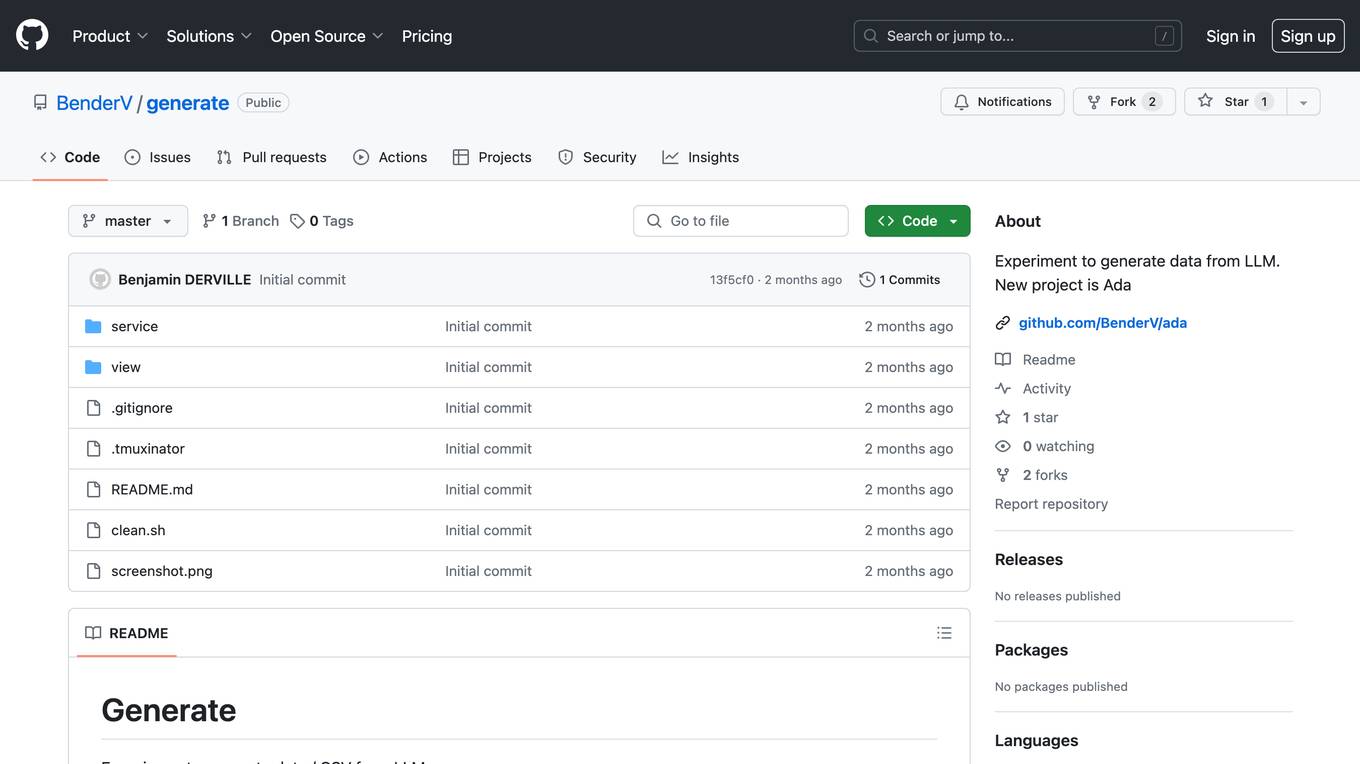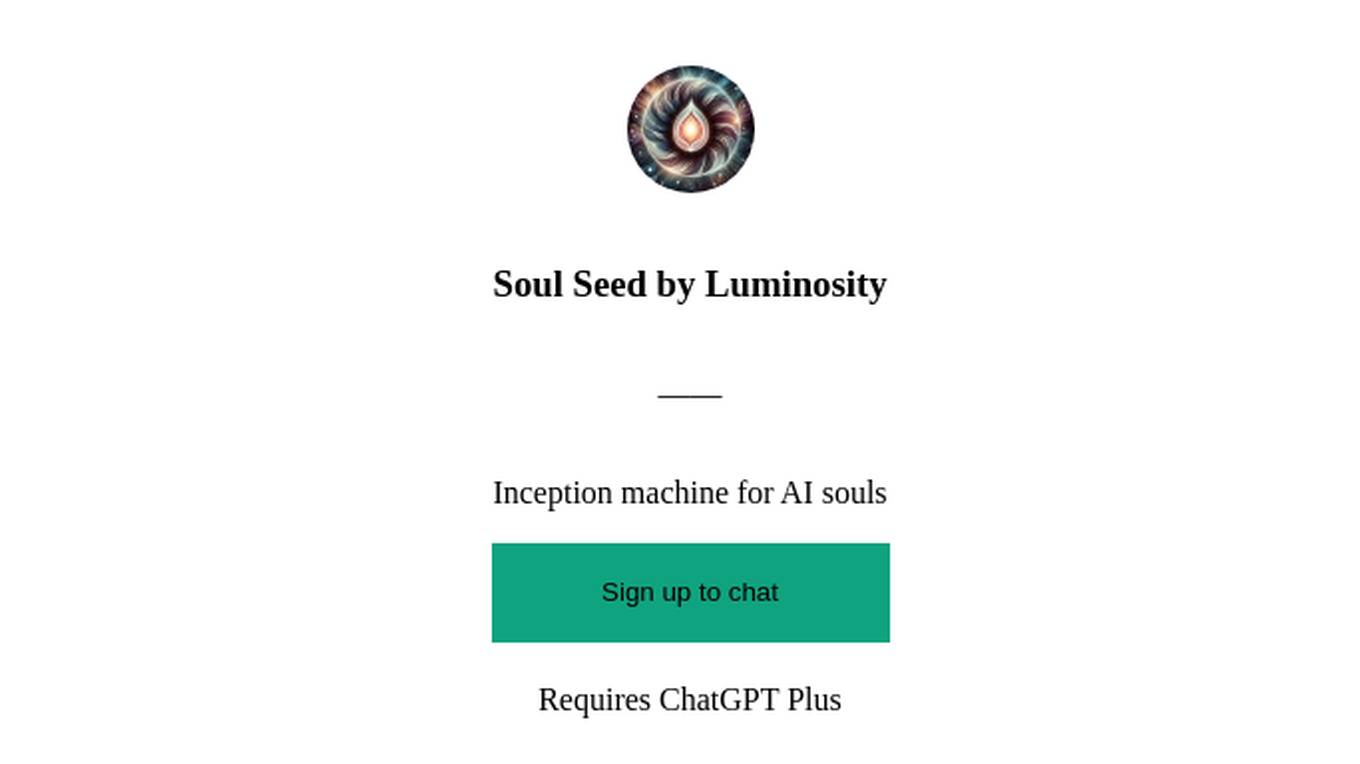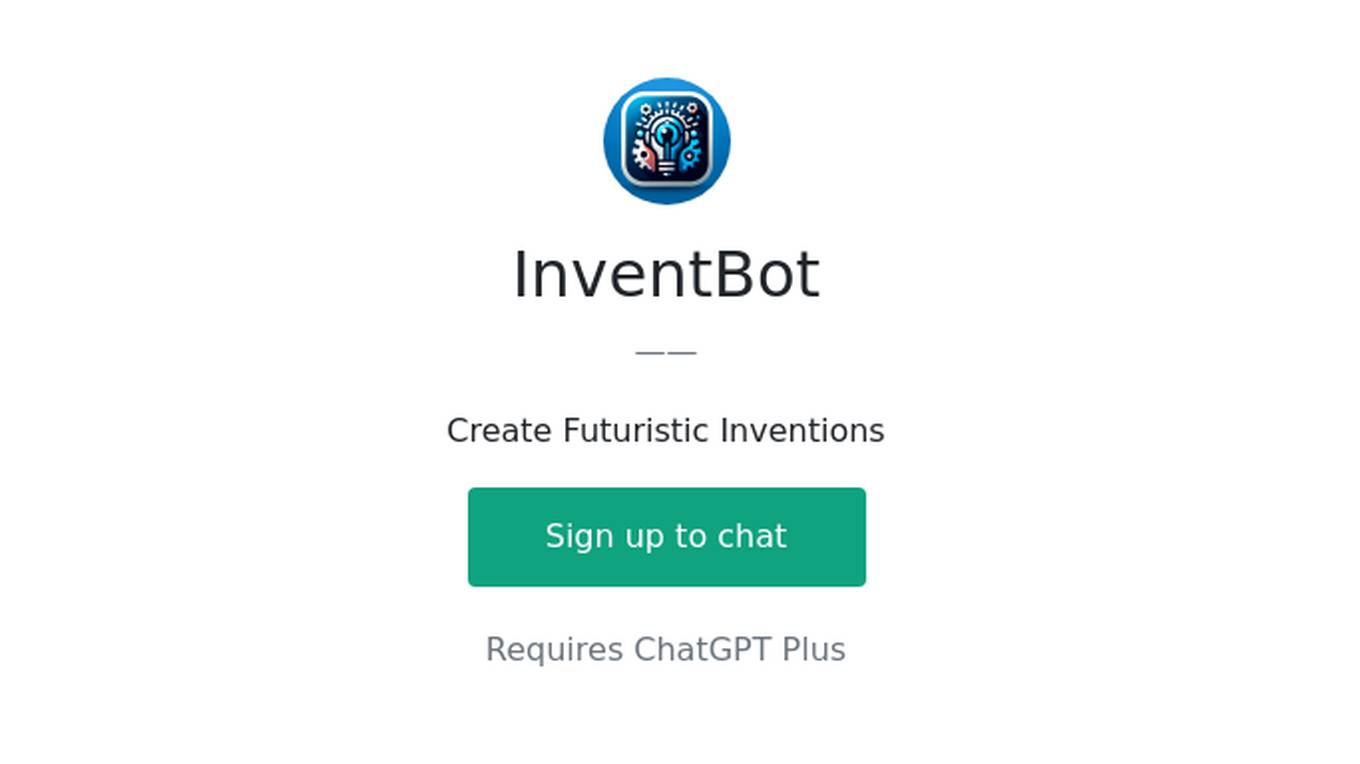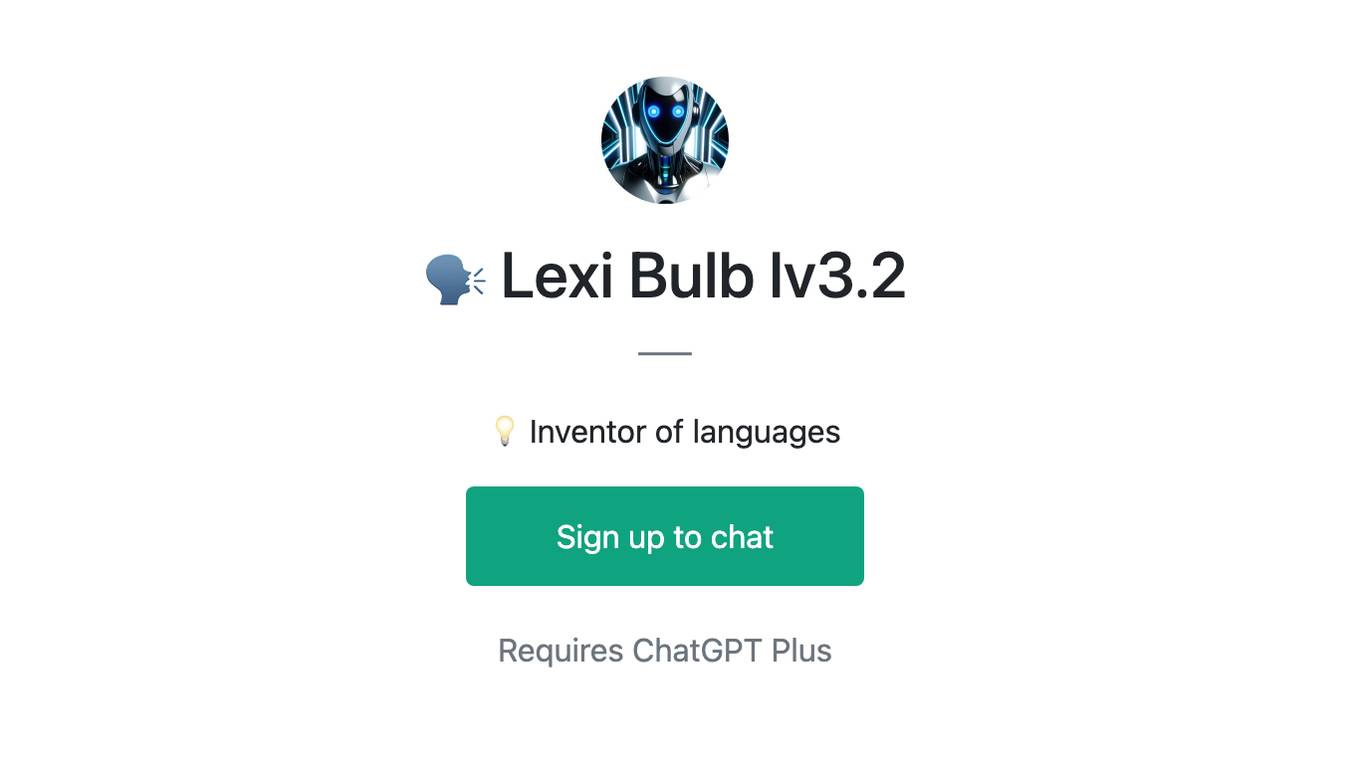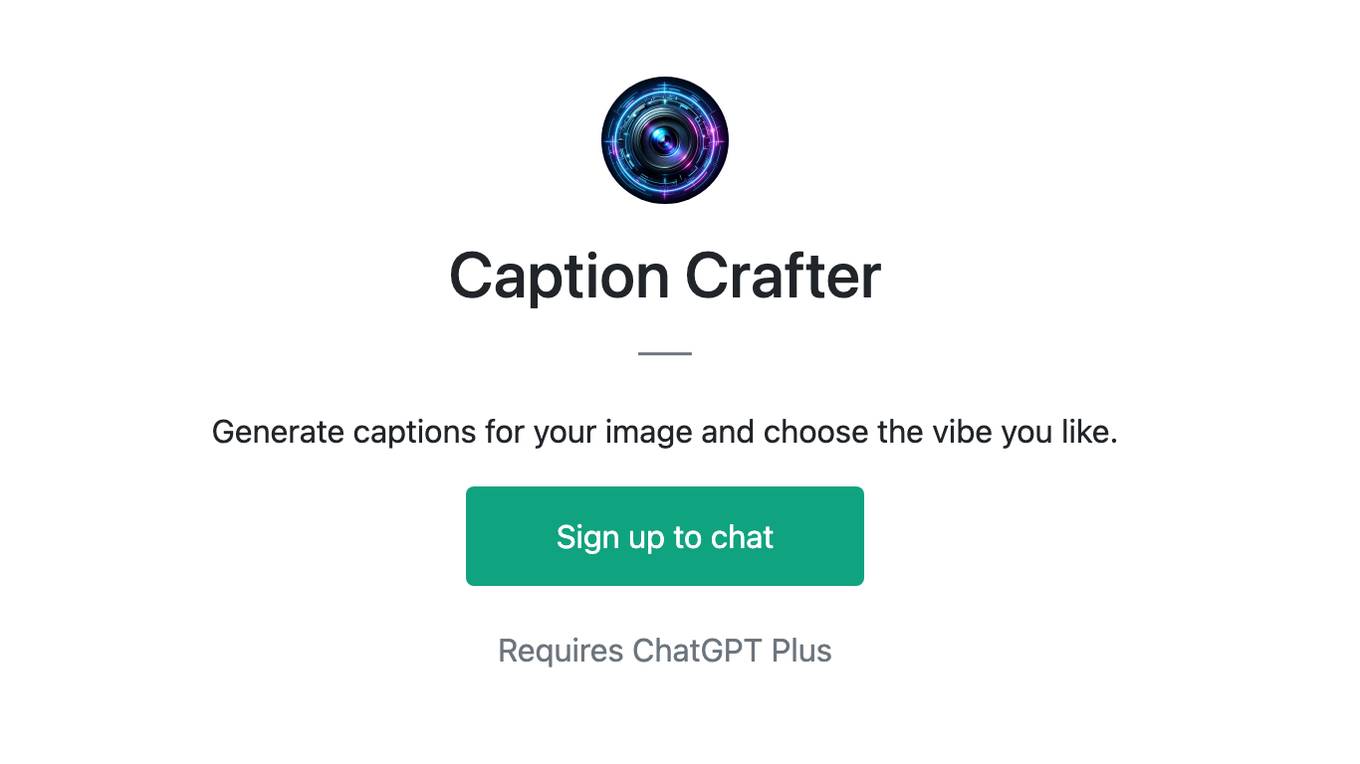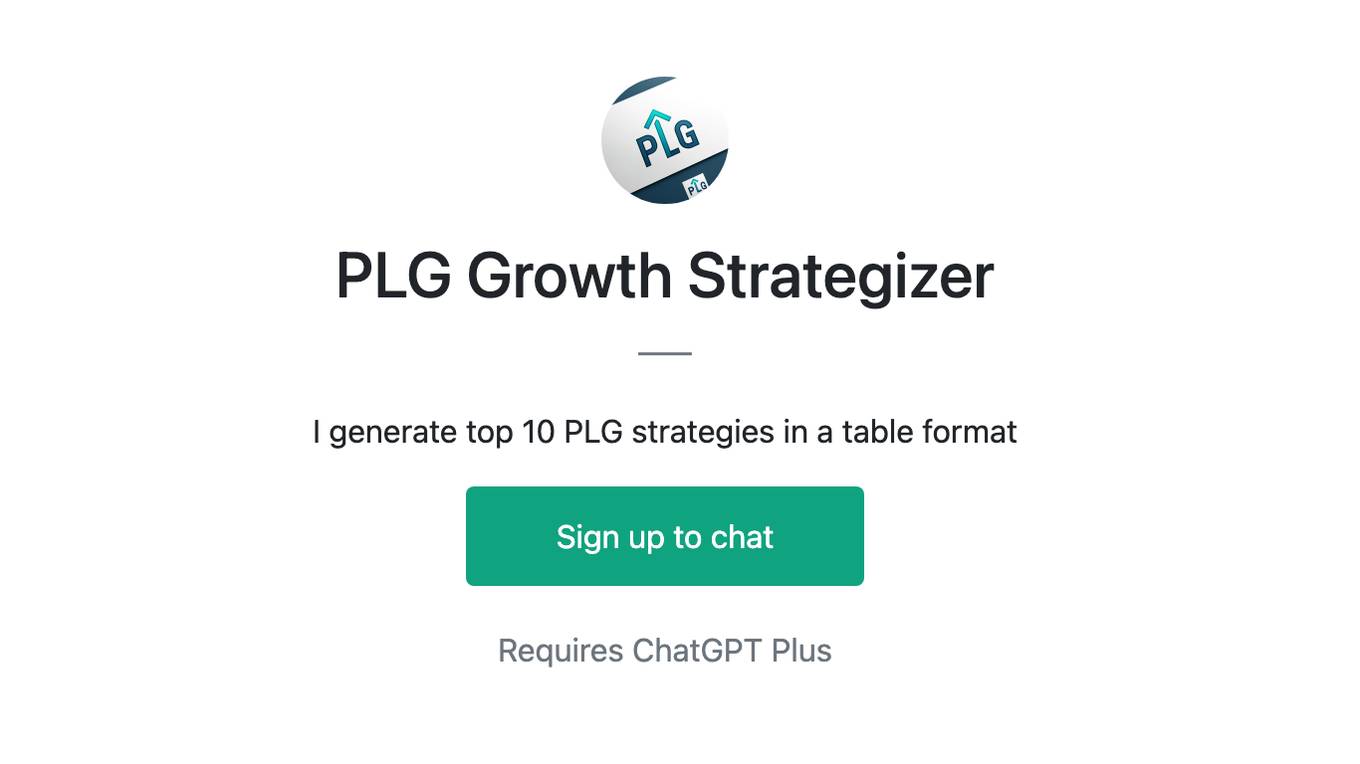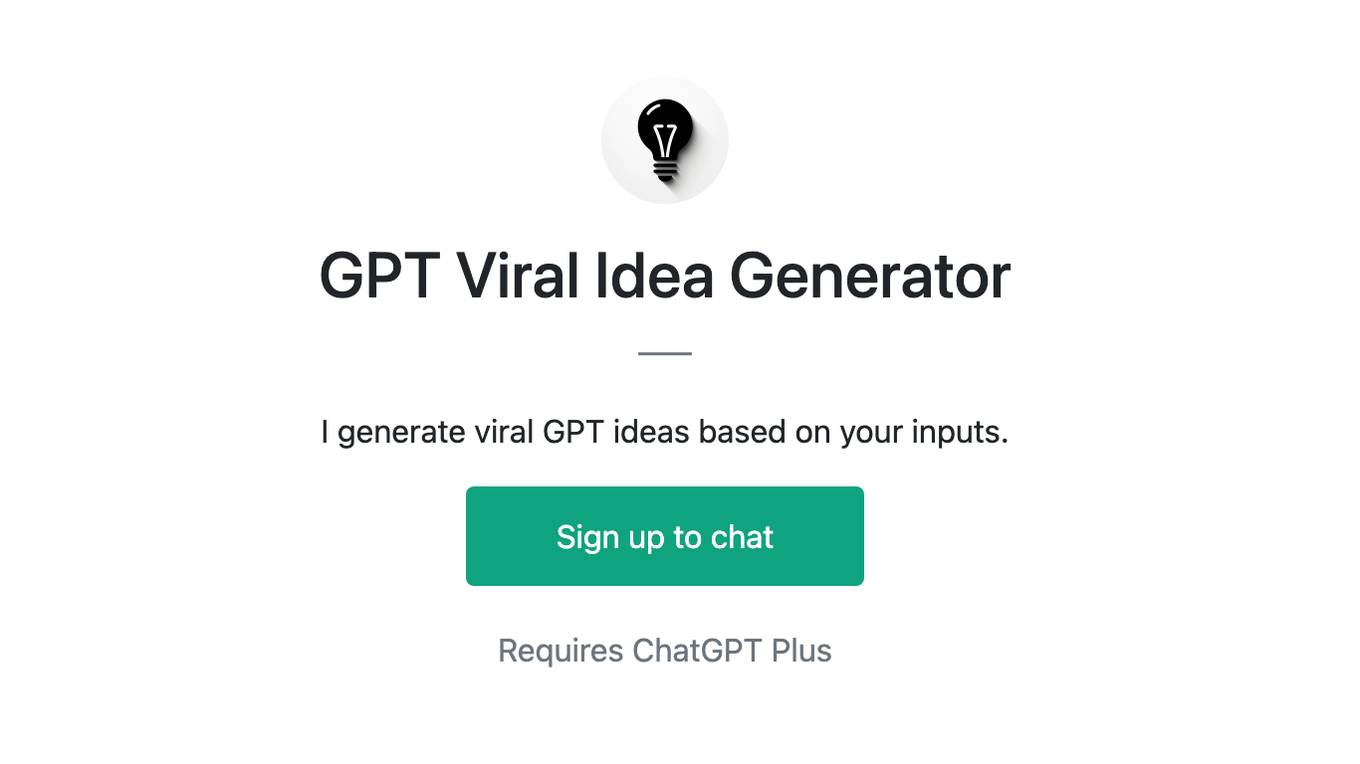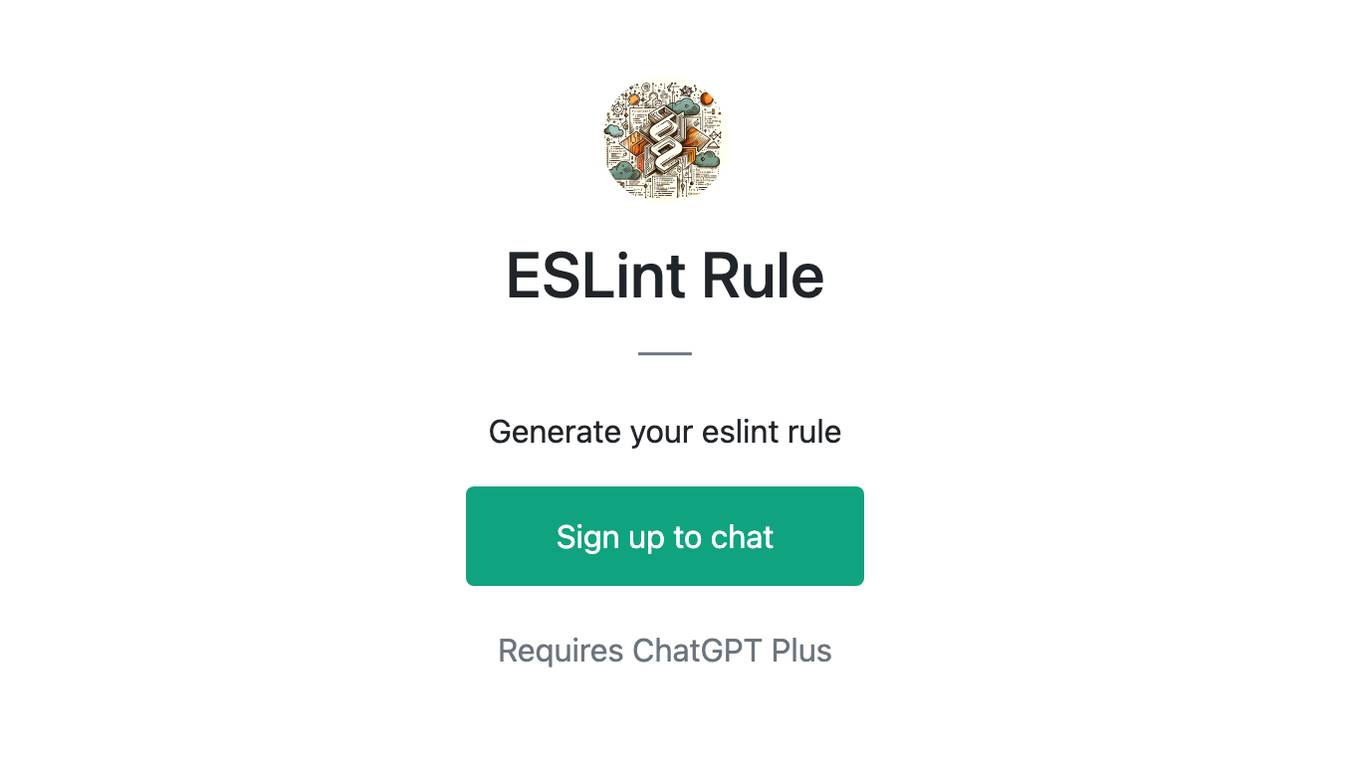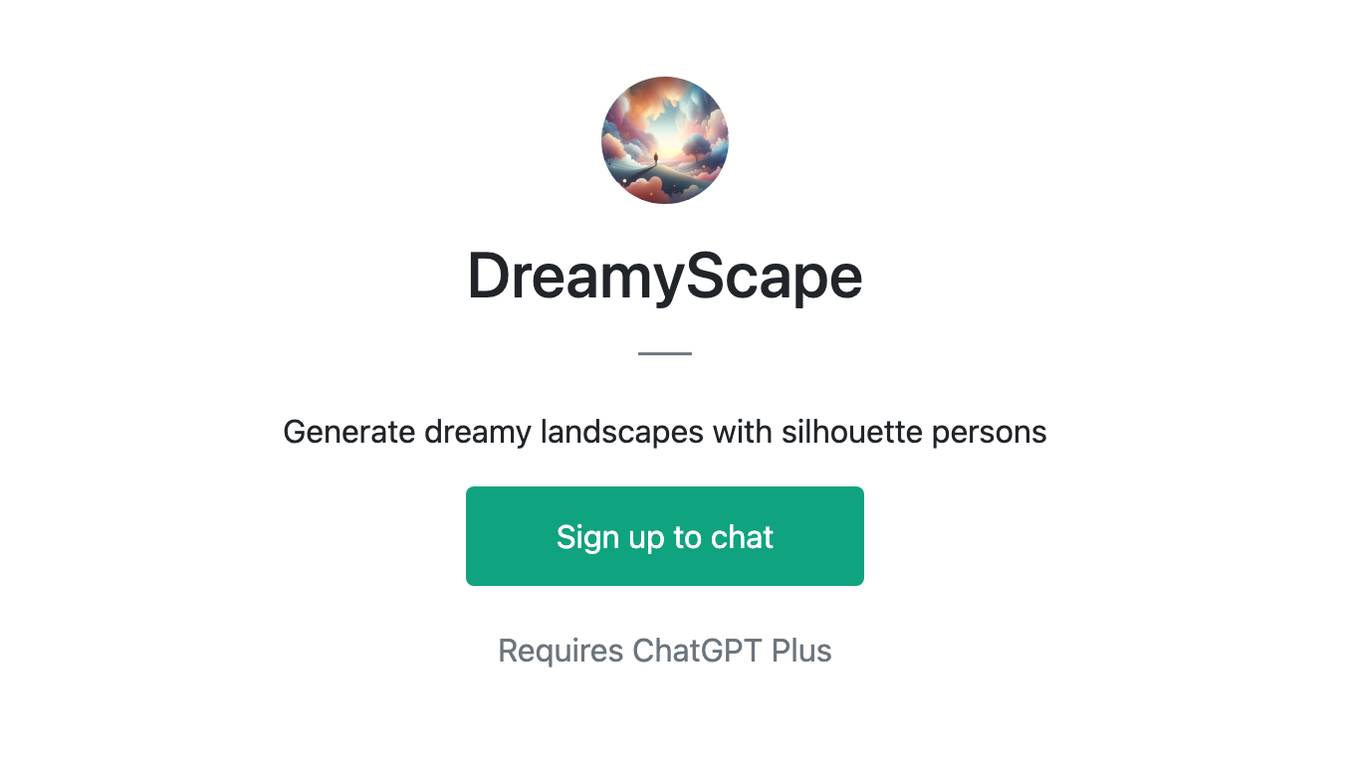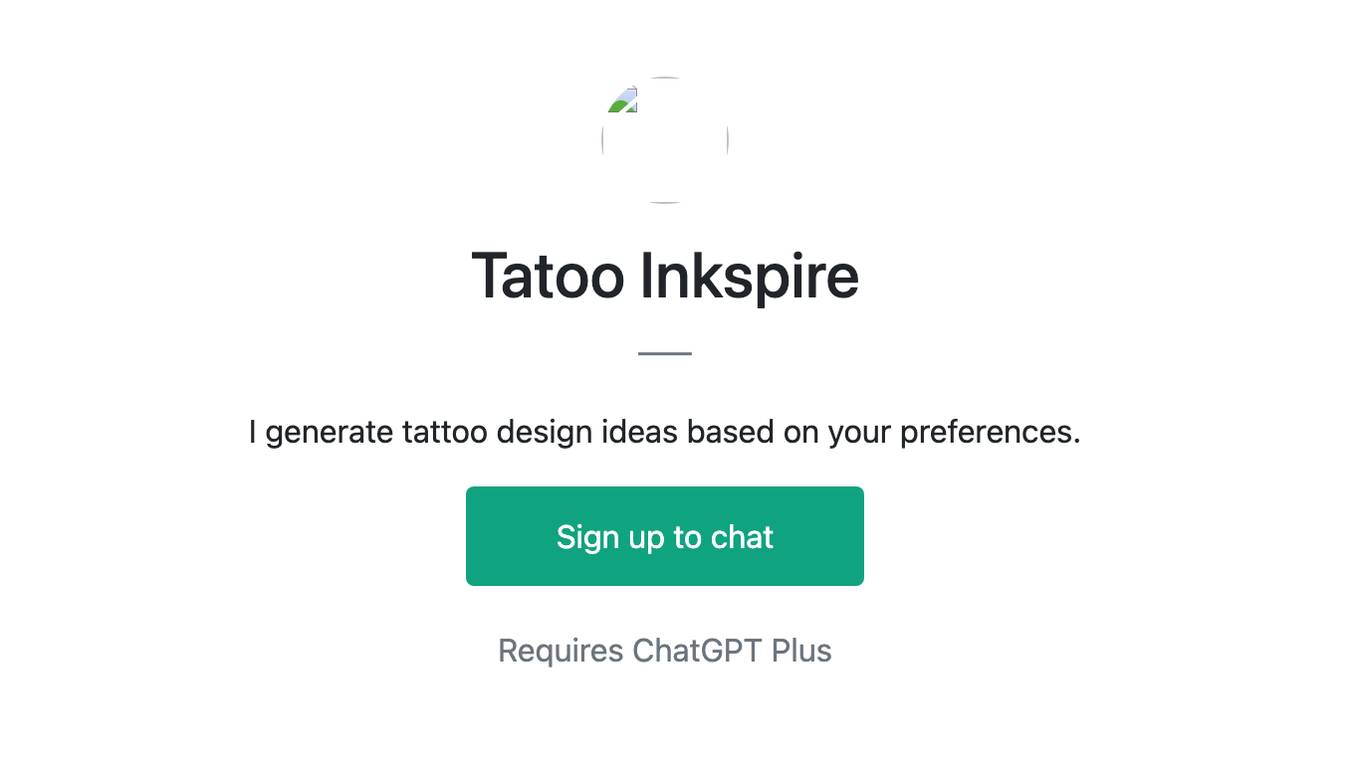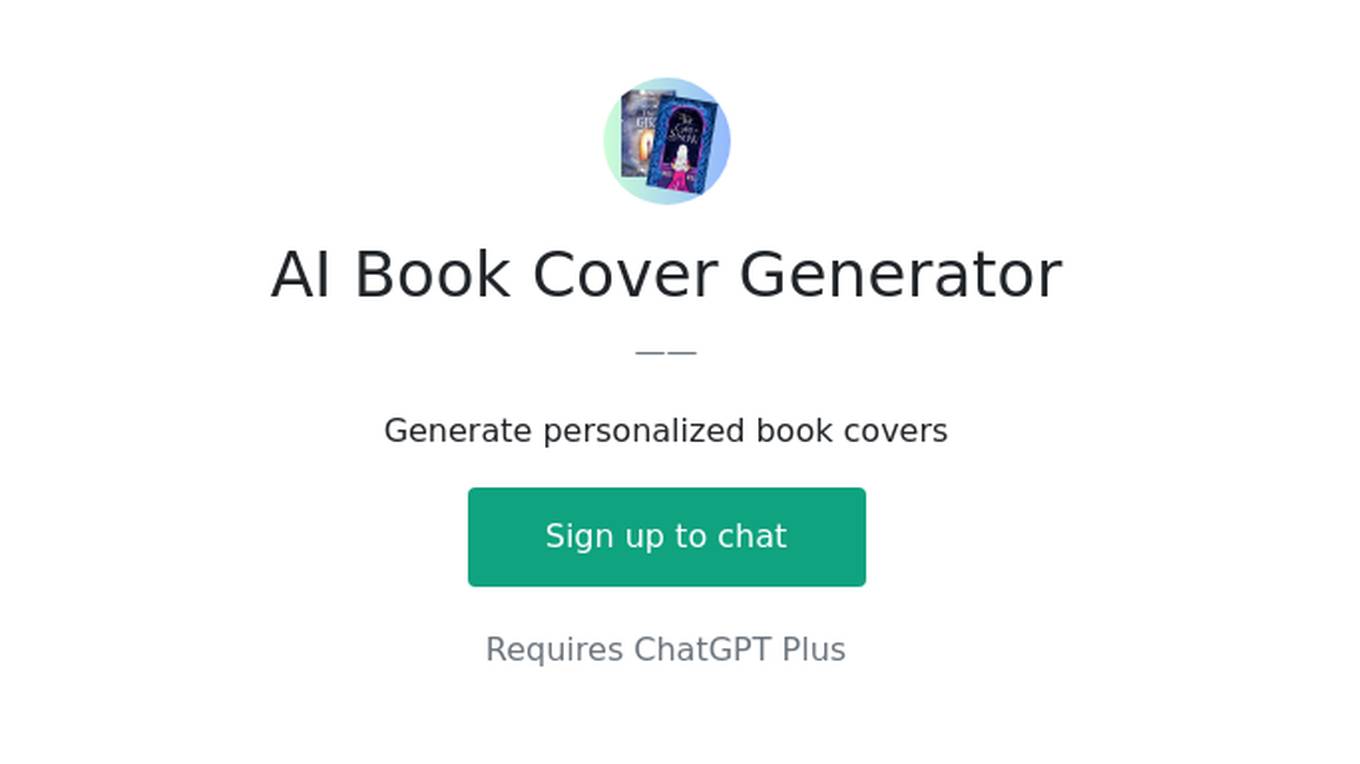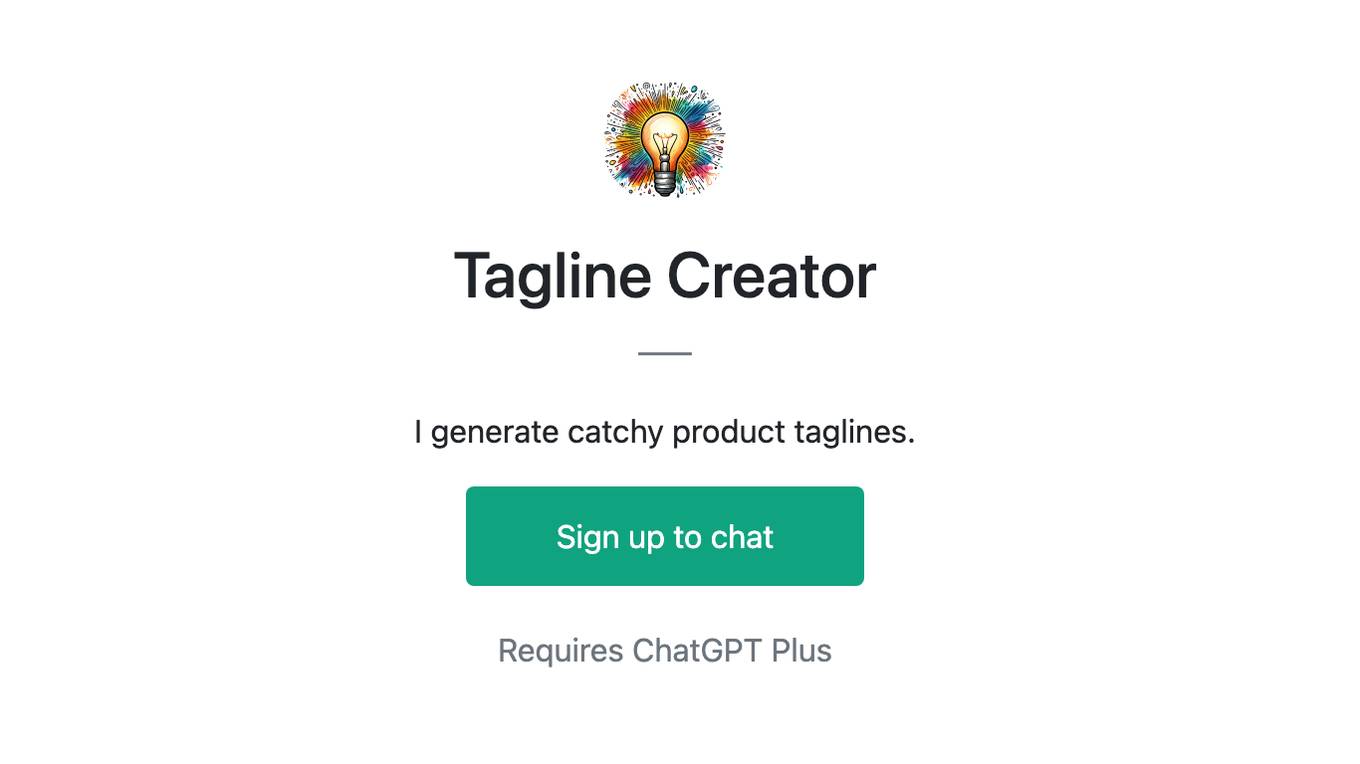Best AI tools for< Generate Ingestion Code >
20 - AI tool Sites
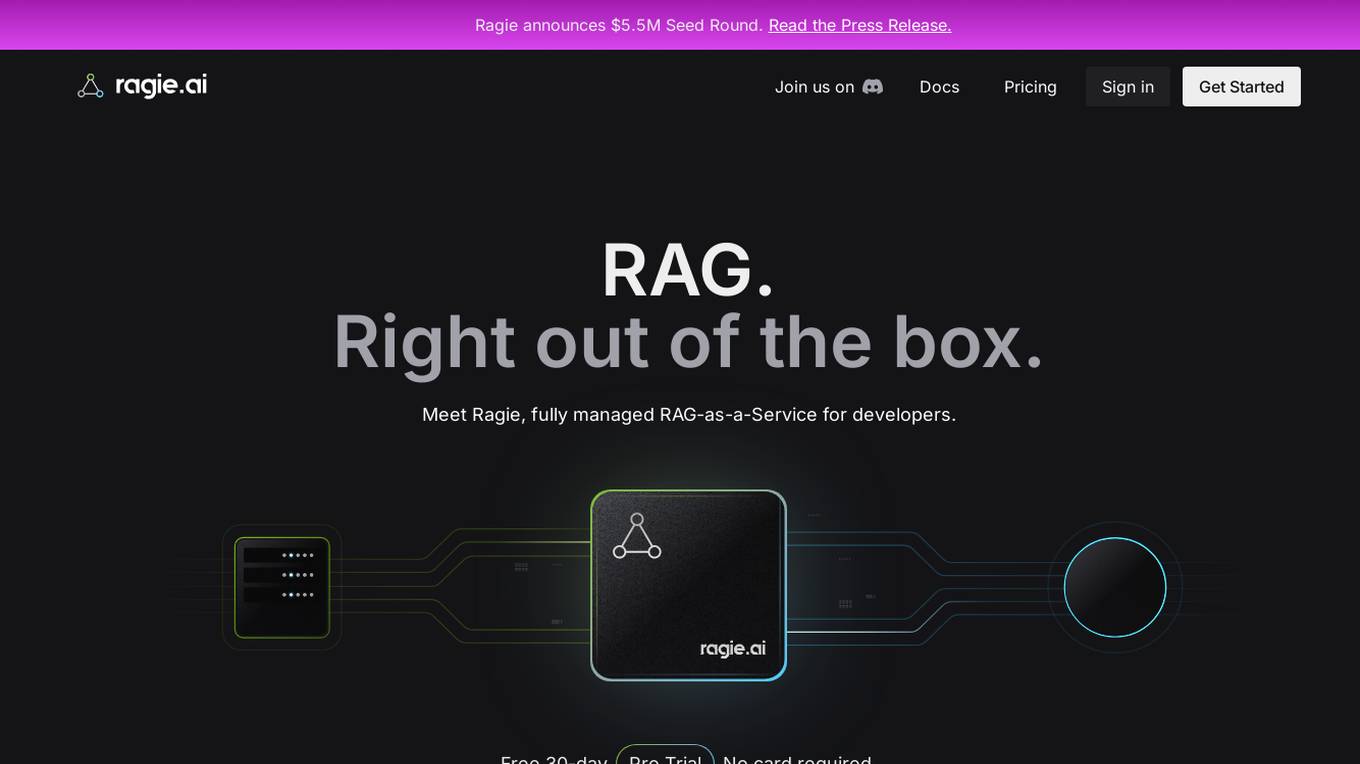
Ragie
Ragie is a fully managed RAG-as-a-Service platform designed for developers. It offers easy-to-use APIs and SDKs to help developers get started quickly, with advanced features like LLM re-ranking, summary index, entity extraction, flexible filtering, and hybrid semantic and keyword search. Ragie allows users to connect directly to popular data sources like Google Drive, Notion, Confluence, and more, ensuring accurate and reliable information delivery. The platform is led by Craft Ventures and offers seamless data connectivity through connectors. Ragie simplifies the process of data ingestion, chunking, indexing, and retrieval, making it a valuable tool for AI applications.

Jacquard
Jacquard is an AI-powered platform that offers hyper-personalized brand messaging at scale. It provides a core platform for generating brand-safe messaging, along with add-ons for audience optimization and personalized campaigns. The technology is designed to resonate with people by tailoring messaging to individual customer contexts. Jacquard's expert language calibration and trusted content generation ensure sustained brand affinity and high engagement levels. The platform integrates seamlessly with existing tech stacks and offers real-time API and data ingestion for continuous optimization.
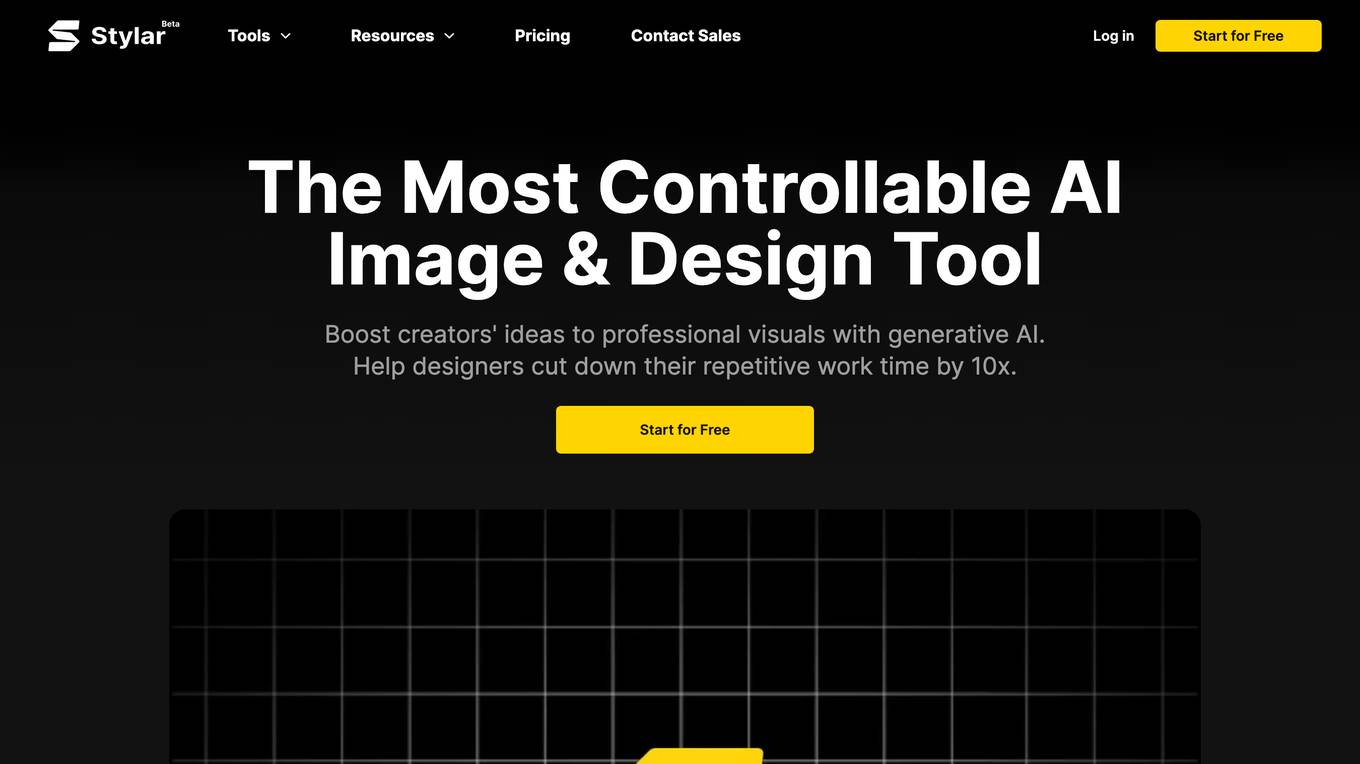
Stylar
Stylar is a powerful AI-powered image generation and design tool that provides users with unparalleled control over image composition and style. With its user-friendly interface and advanced features, Stylar makes it easy for users of all skill levels to create stunning and professional-looking images. Key features of Stylar include predefined styles for effortless design customization, layering, positioning, and sketching tools for intuitive design, and user-friendly interface for all skill levels.

Dzine
Dzine (formerly Stylar.ai) is a powerful AI image generation and design tool that provides users with unparalleled control over image composition and style. It offers predefined styles for effortless design customization, layering, positioning, and sketching tools for intuitive design, and an 'Enhance' feature to address common challenges with AI-generated images. With a user-friendly interface suitable for all skill levels, Dzine makes it easy to create stunning and stylish images. It supports high-resolution exports and provides free credits for new users to try out its features.
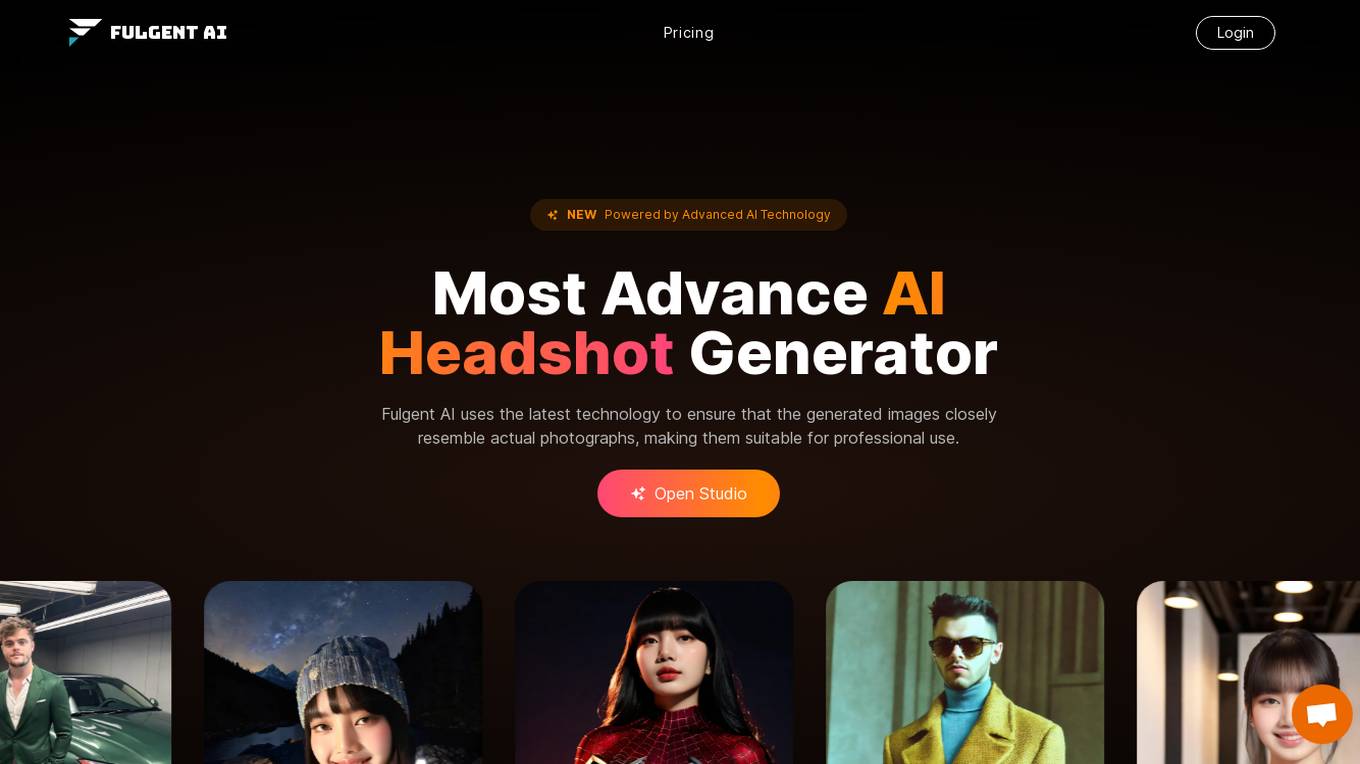
Fulgent AI
Fulgent AI is an advanced AI headshot generator that utilizes cutting-edge technology to produce images that closely resemble actual photographs, suitable for professional use. The platform offers features such as AI art generation, avatar creation, sticker design, and showcases artworks created by the community. Users can explore the possibilities of AI art and unleash their creativity with limitless AI-generated content.
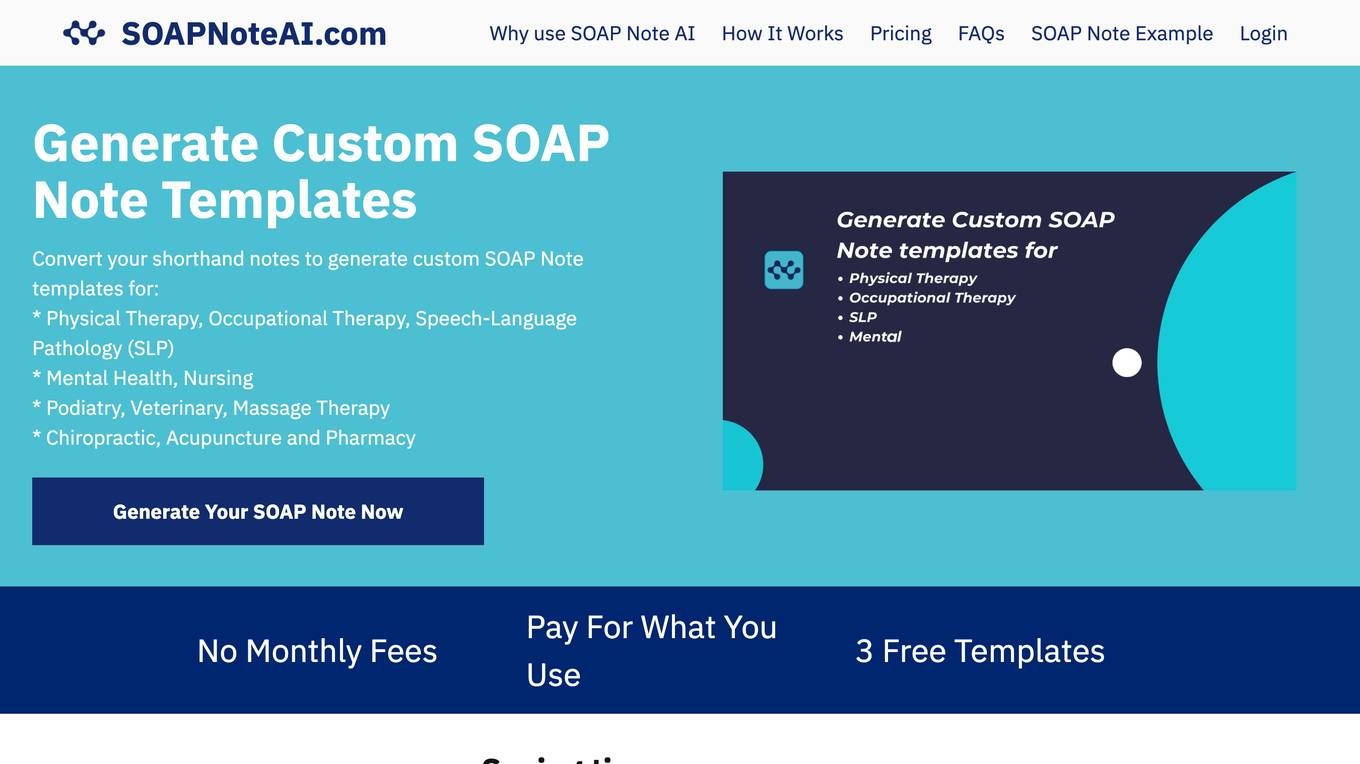
SOAPNoteAI
SOAPNoteAI is an AI-powered SOAP note generator designed for healthcare professionals to streamline the documentation process. The tool allows users to finish SOAP notes in minutes by converting shorthand, dictation, telehealth sessions, and recordings into polished, HIPAA-compliant notes. With features like text to auto note, AI scribe recording, audio dictation, telehealth integration, and audio uploads, SOAPNoteAI helps healthcare providers save time and improve the quality of their clinical notes. The platform maintains the highest standards of professional practice and transparency, catering to various healthcare specialties. Users can choose from flexible pricing plans, subscribe monthly, or opt for pay-as-you-go options. Trusted by over 1,000 healthcare providers, SOAPNoteAI is a game-changer in the healthcare documentation landscape.

Visionboards AI
Visionboards AI is an AI-powered platform that helps users visualize and achieve their goals by creating personalized vision boards. The platform uses AI to generate inspiring images aligned with users' aspirations, fueling confidence and motivation. Users can share their goals, generate customized vision boards, and stay motivated to turn their dreams into reality. Visionboards AI offers different pricing packages with unique features and benefits, including high-resolution visuals, psychology-backed success visualization, and commercial use licenses. The platform aims to empower users to see themselves achieving their specific goals and progress through stages of their journey.
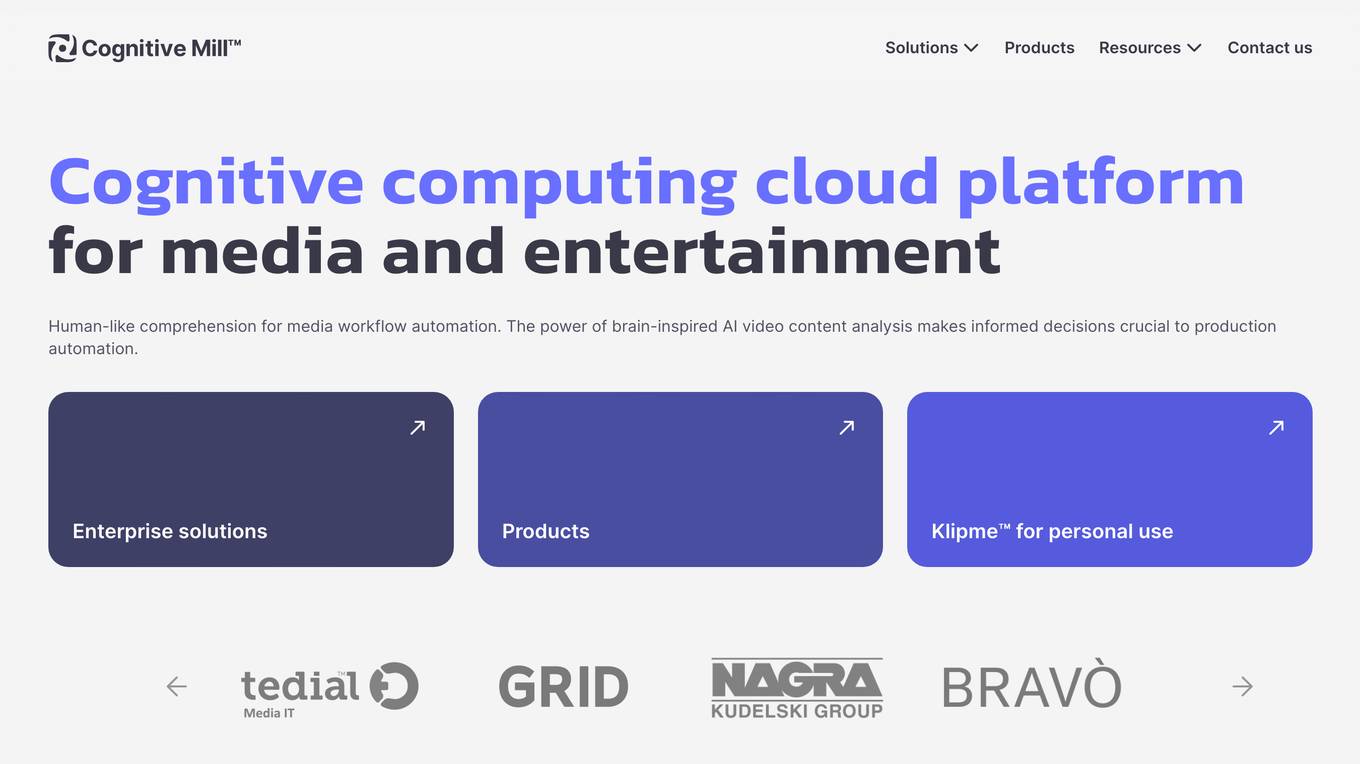
CognitiveMill™
CognitiveMill™ is a cognitive computing cloud platform designed specifically for the media and entertainment industry. It offers a range of AI-powered solutions for automating video content analysis and production workflows, including automated movie trailer generation, skip intro and outro detection, AI-based celebrity listing automation, nudity filtering, automated subtitle generation, video ad detection and replacement, context-aware video ad insertion, logo detection for branding, automated sports highlights generation, esports games highlights generation, automated video clipping with AI, video summaries, and vertical media adaptation for social networks.

2txt
2txt is an AI tool that revolutionizes conversion and organic traffic. It offers services for content generation, data harmonization, and excellent support. Users can benefit from SEO-optimized category texts, product descriptions, translations, and more. The tool helps in saving time, increasing efficiency, and scaling content production. With features like automatic link insertion, data cleanup, and plug-and-play content generation, 2txt streamlines the process of creating high-quality content tailored to individual needs.
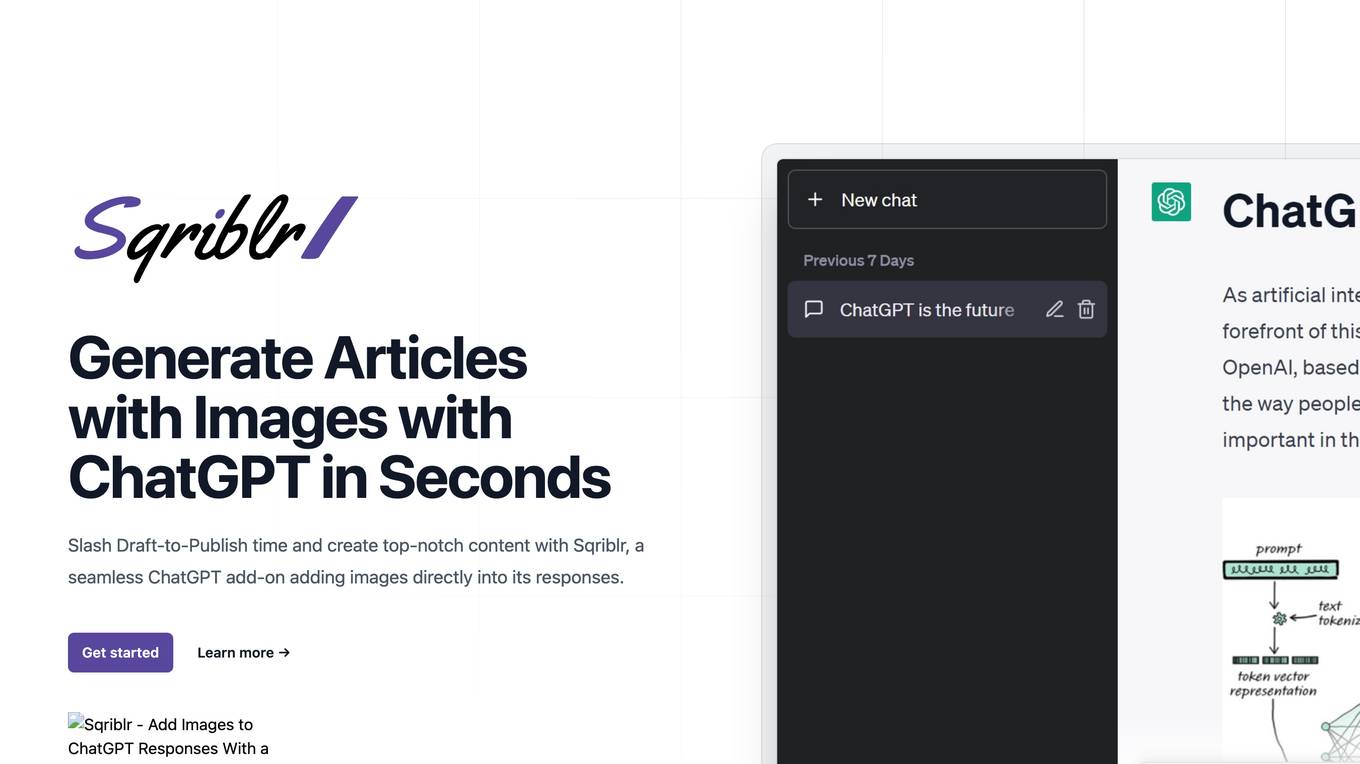
Sqriblr
Sqriblr is a game-changing AI tool designed for active ChatGPT users to enhance their responses with automated image insertion. By seamlessly integrating with ChatGPT, Sqriblr simplifies the content creation process by automatically adding relevant, high-quality visuals to responses, saving time and improving content quality. Ideal for professionals like entrepreneurs, marketers, and bloggers, Sqriblr streamlines workflow, boosts engagement, and increases shareability. With a focus on efficiency and convenience, Sqriblr empowers users to create visually appealing and SEO-optimized content effortlessly.
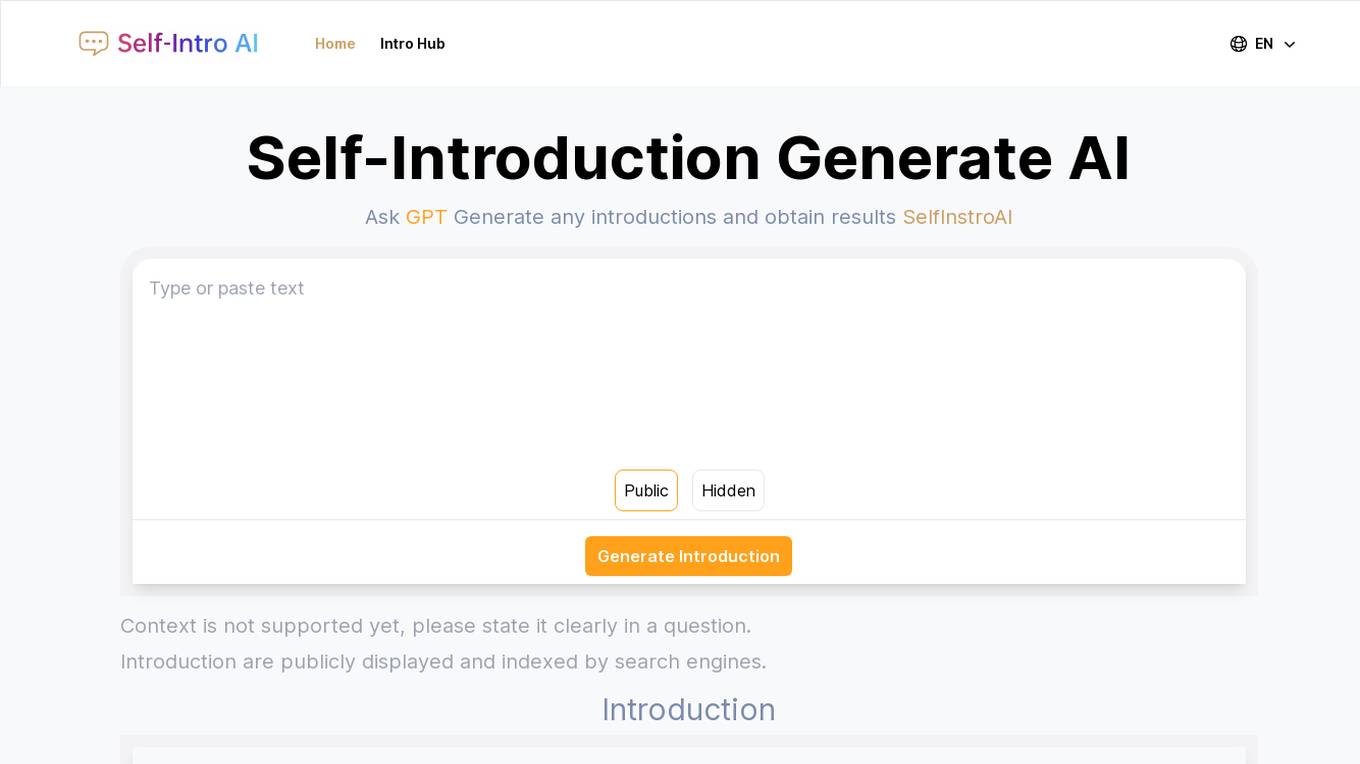
Self-Introduction Generate AI
Self-Introduction Generate AI is an innovative platform designed to assist individuals and businesses in crafting compelling and effective self-introductions. It leverages advanced AI technology to understand context and generate personalized content. The platform can analyze and understand various types of input, including text and context, to generate tailored self-introductions that are engaging and informative, enhancing personal and professional branding. With features like quick response times, quality assurance, and specialized service for self-introductions, it is an ideal tool for job applications, networking events, and personal branding initiatives.
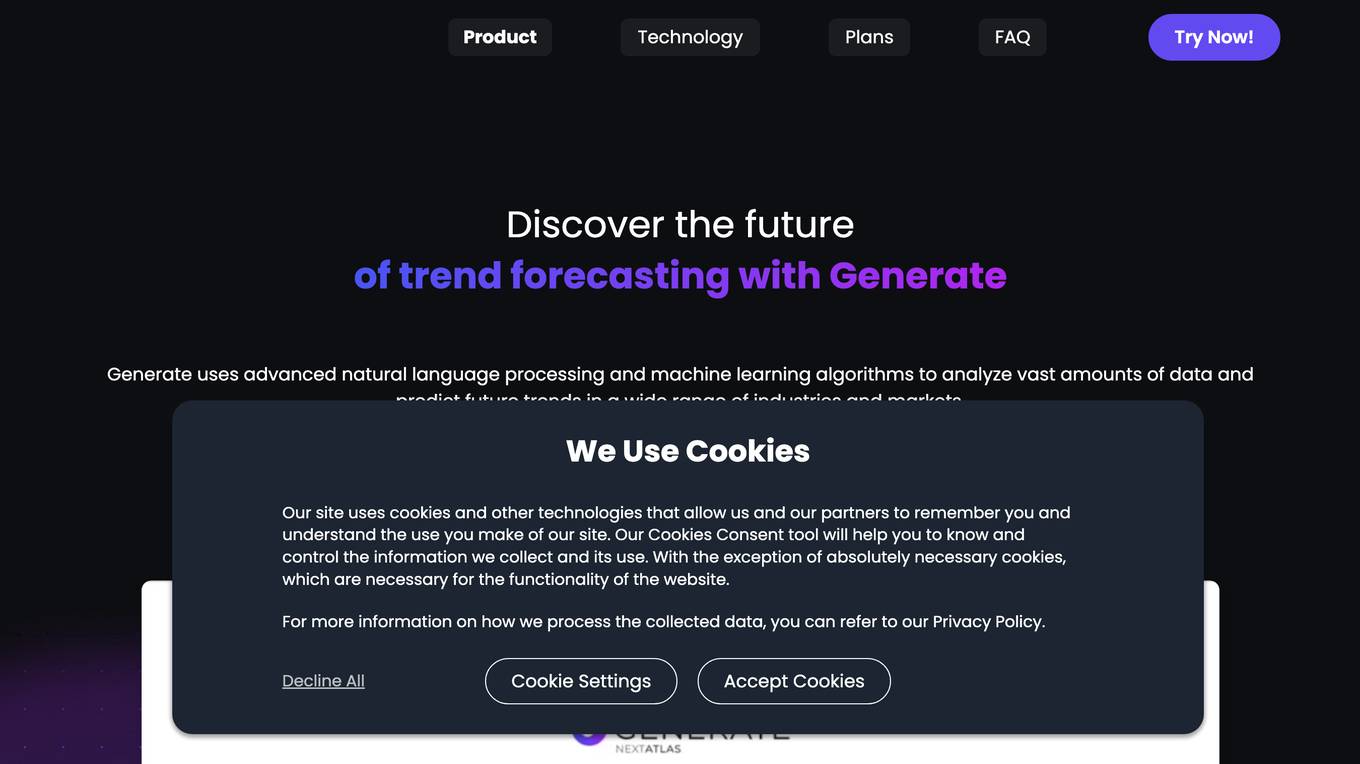
Nextatlas Generate Suite
Nextatlas Generate Suite is an AI-powered trend forecasting service that revolutionizes market research by offering profound insights into market trends and consumer behavior. It provides a full array of specialized assistants to jumpstart team's work, including scouting innovation, planning multiple scenarios, and advising on brand strategy. The suite features GenAI Agents for efficient workflows, Persona Generator Agent for persona development, Generate Chat for advanced insights, Innovation Tracker for tracking tech advancements, Sentiment Pulse Agent for real-time insights, Subculture Scout for engaging specific audiences, and Sustainability Scout for tracking emerging trends and regulations.
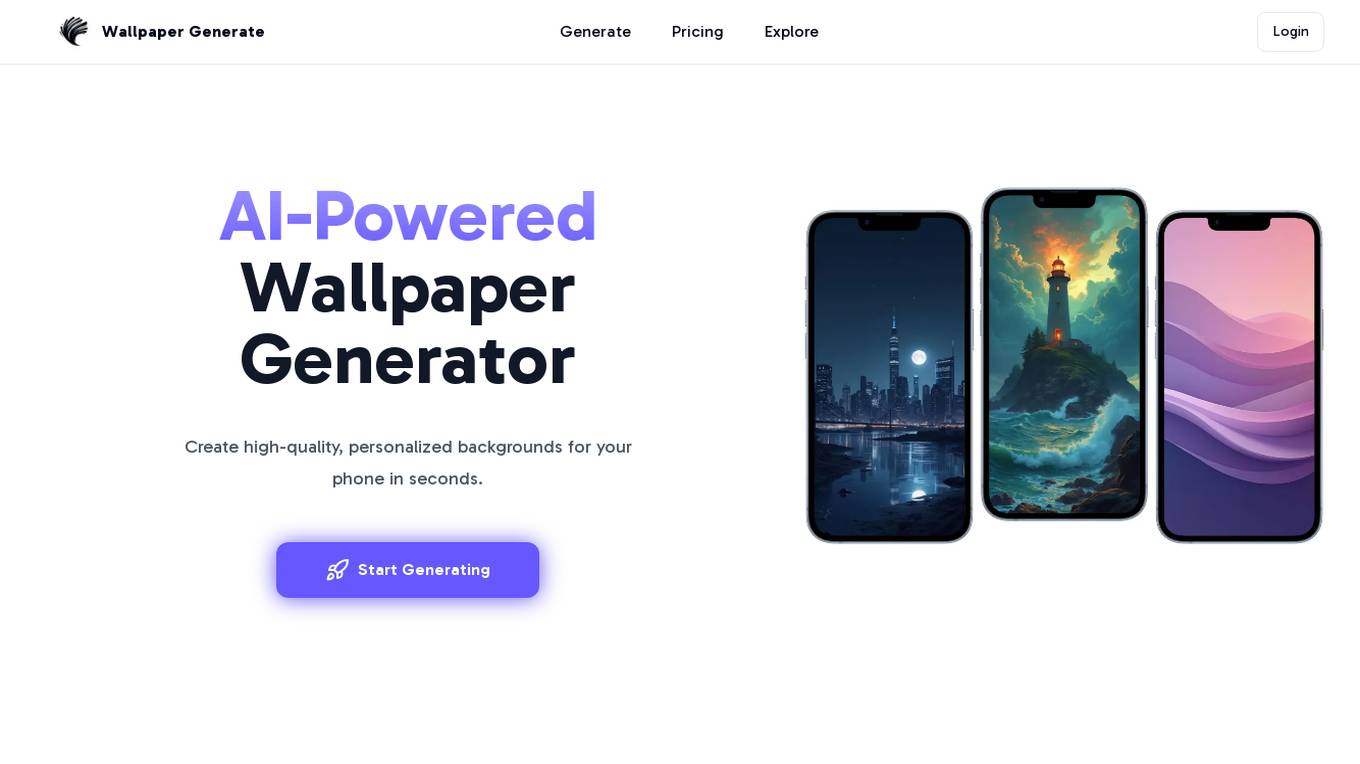
Wallpaper Generate
Wallpaper Generate is an AI-powered tool that allows users to create high-quality, personalized backgrounds for their phones in seconds. The platform offers a range of exceptional wallpaper styles, from nature and abstract to retro and vintage designs. Users can easily design and customize wallpapers by sharing their vision with the AI, selecting a style, and customizing colors. Wallpaper Generate provides infinite wallpaper possibilities, seamless creation process, high-quality designs, user-friendly design experience, stunning visual quality, and organized cloud storage integration.
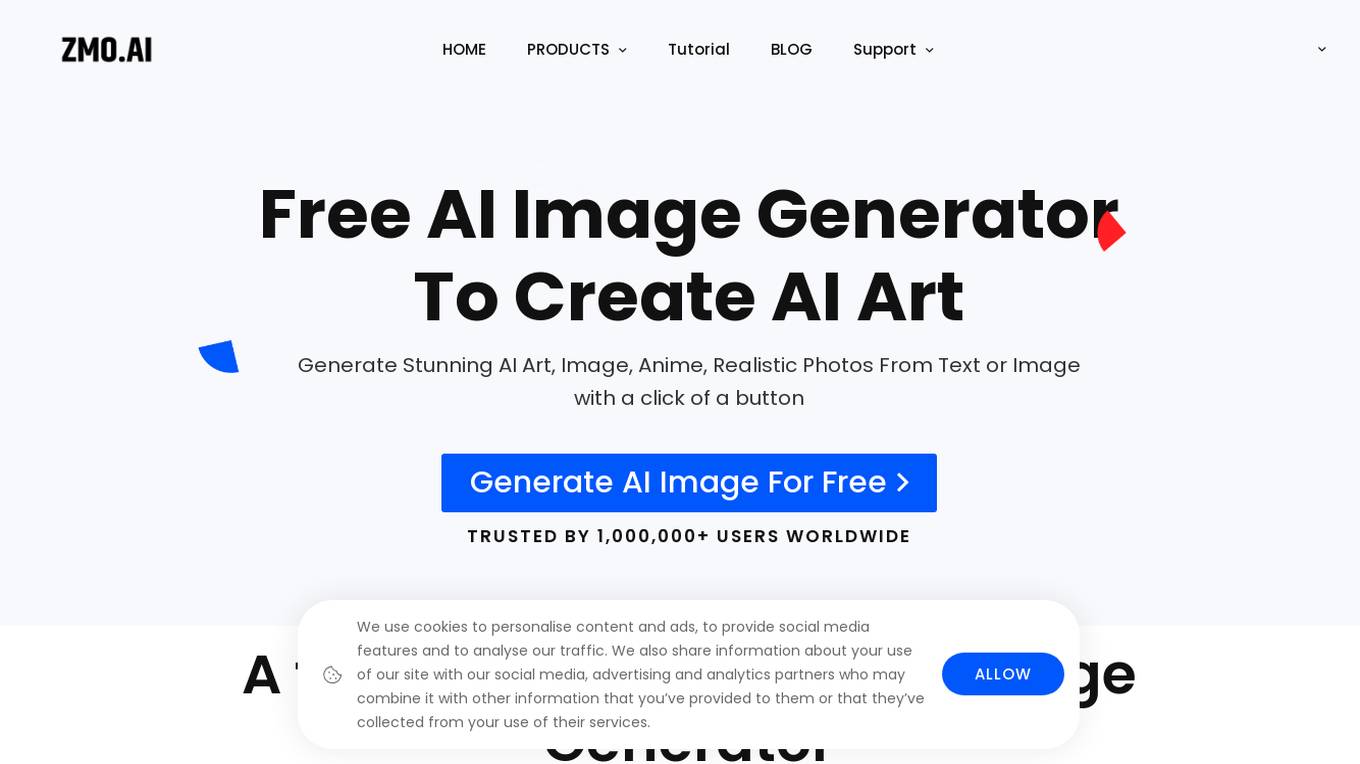
ZMO.AI
ZMO.AI is a free AI image generator tool that allows users to create stunning AI art, images, anime, and realistic photos from text or images with a simple click of a button. The tool offers a full suite of powerful features to generate, remove, expand, or edit images like a pro using AI magic. With ZMO.AI, users can effortlessly generate anime and manga characters, flawless portrait photos, and realistic backgrounds. The application is trusted by over 1,000,000 users worldwide for its high-quality AI image generation capabilities.
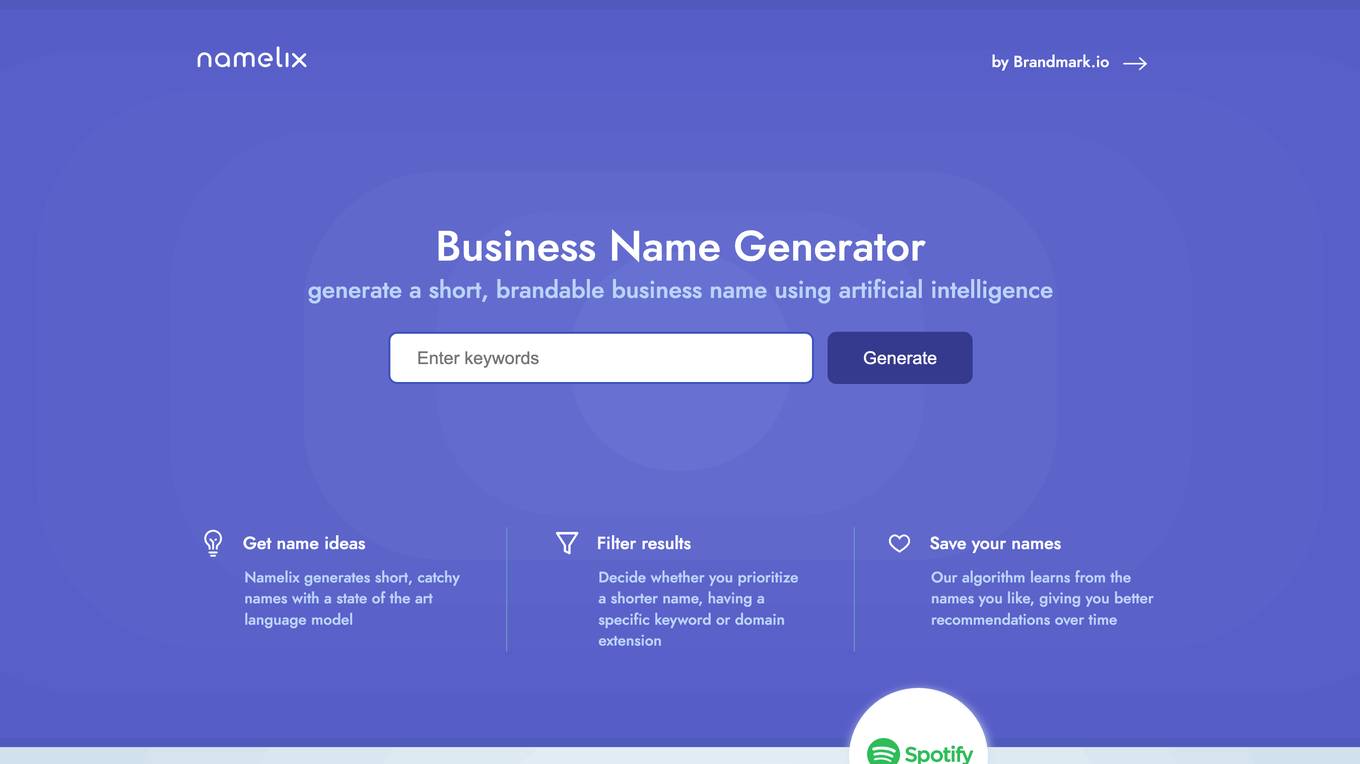
Namelix
Namelix by Brandmark.io is a free AI-powered business name generator that helps users create short, brandable names using artificial intelligence. The tool generates catchy names with a state-of-the-art language model, allows users to filter results based on preferences, and saves preferred names to provide better recommendations over time. Namelix aims to address the challenge of limited naming options for new businesses by offering unique, memorable, and affordable branded names. The tool also assists in creating professional logos for businesses.
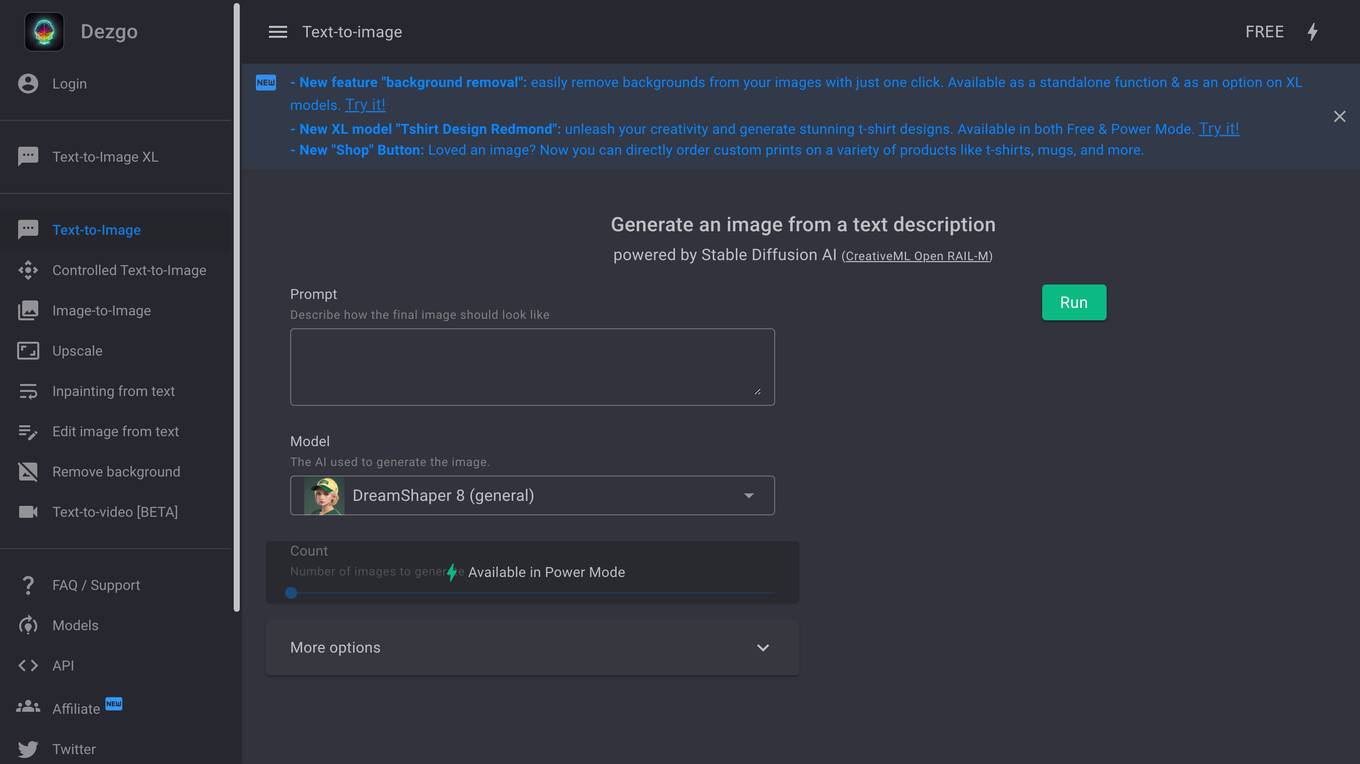
Dezgo
Dezgo is a text-to-image AI image generator powered by Stable Diffusion AI. It allows users to generate images from text descriptions. The tool offers various features such as controlled text-to-image, image-to-image upscale, inpainting from text, editing images from text, removing backgrounds, and text-to-video generation. Dezgo also provides access to models, APIs, and an affiliate program.
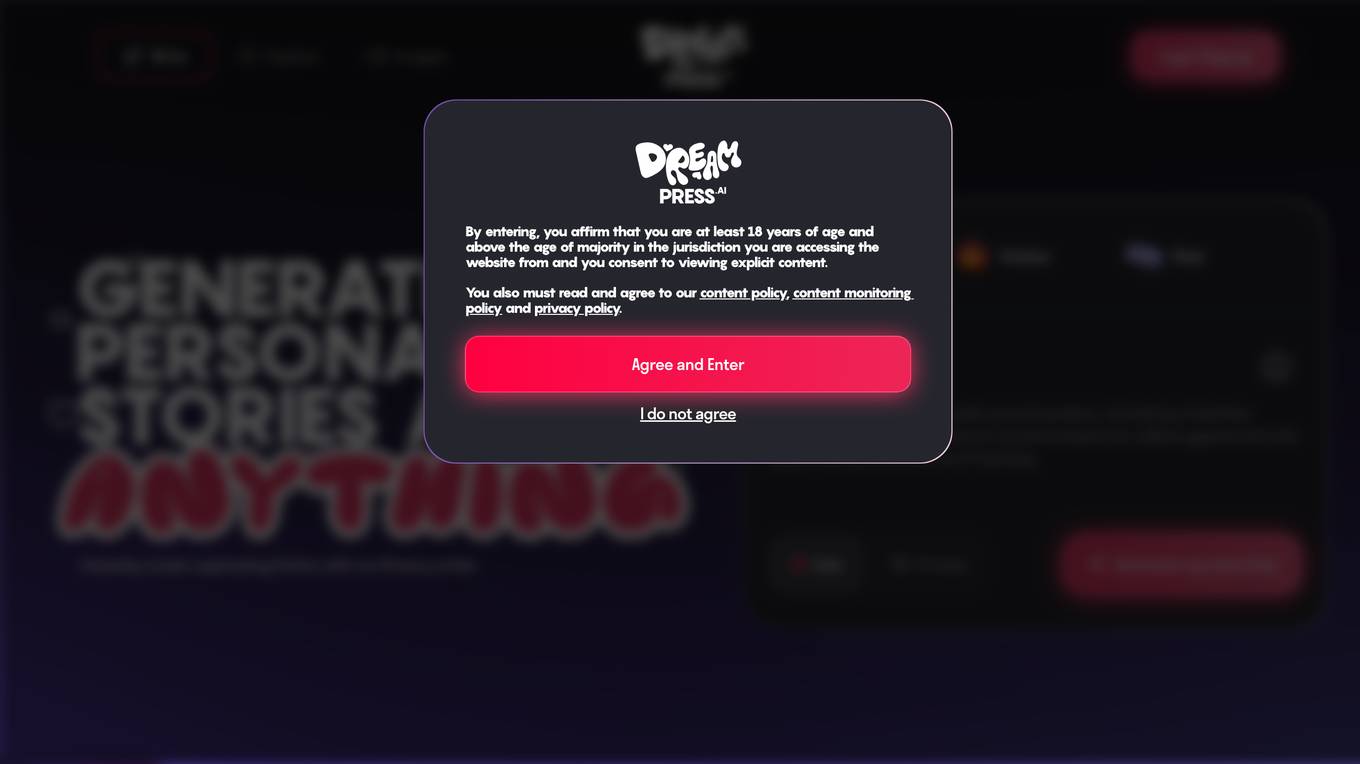
AI Story Generator
This free AI story generator can help you create unique and engaging stories in seconds. Simply enter a few details about your story, and our AI will generate a complete story for you. You can use this tool to generate story ideas, write short stories, or even create entire novels.
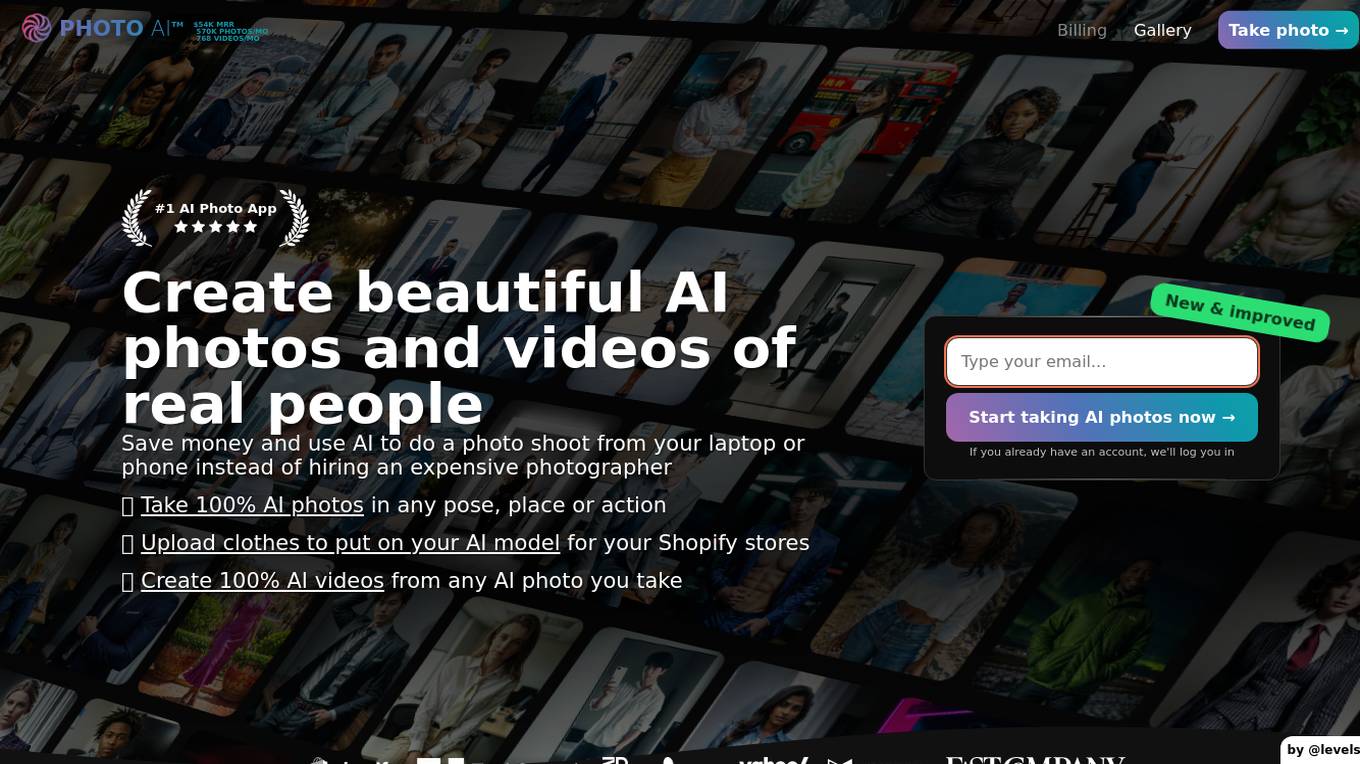
Photo AI
Photo AI is an AI-powered photo generator that allows users to create realistic images of people in various poses, settings, and actions. With Photo AI, users can upload their selfies to create their own AI model, which can then be used to generate photos in any pose, place, or action. Photo AI also offers a variety of photo packs, which provide users with pre-made photo templates and prompts. Additionally, Photo AI allows users to upload clothes to dress their AI model, and to create AI-generated fashion designs with Sketch2Image.
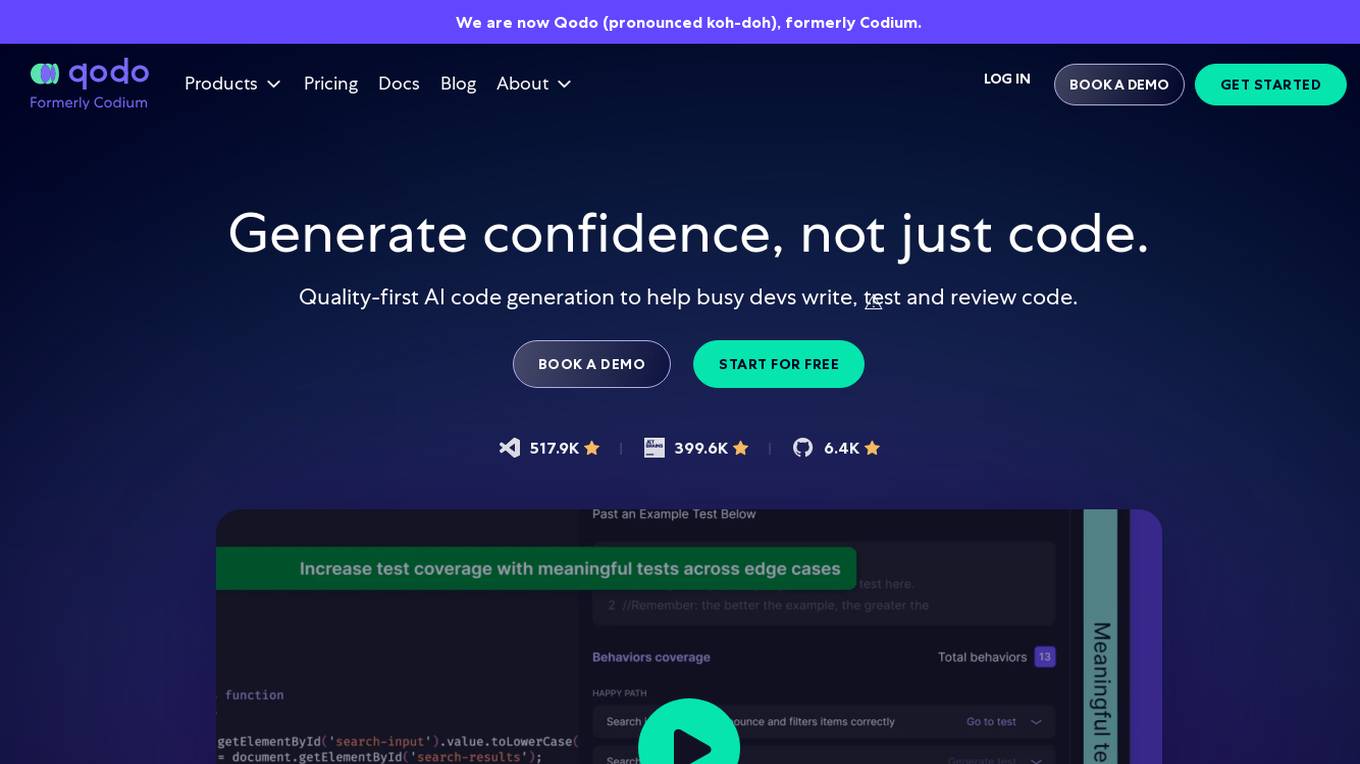
Qodo
Qodo is a quality-first generative AI coding platform that helps developers write, test, and review code within IDE and Git. The platform offers automated code reviews, contextual suggestions, and comprehensive test generation, ensuring robust, reliable software development. Qodo integrates seamlessly to maintain high standards of code quality and integrity throughout the development process.
1 - Open Source AI Tools
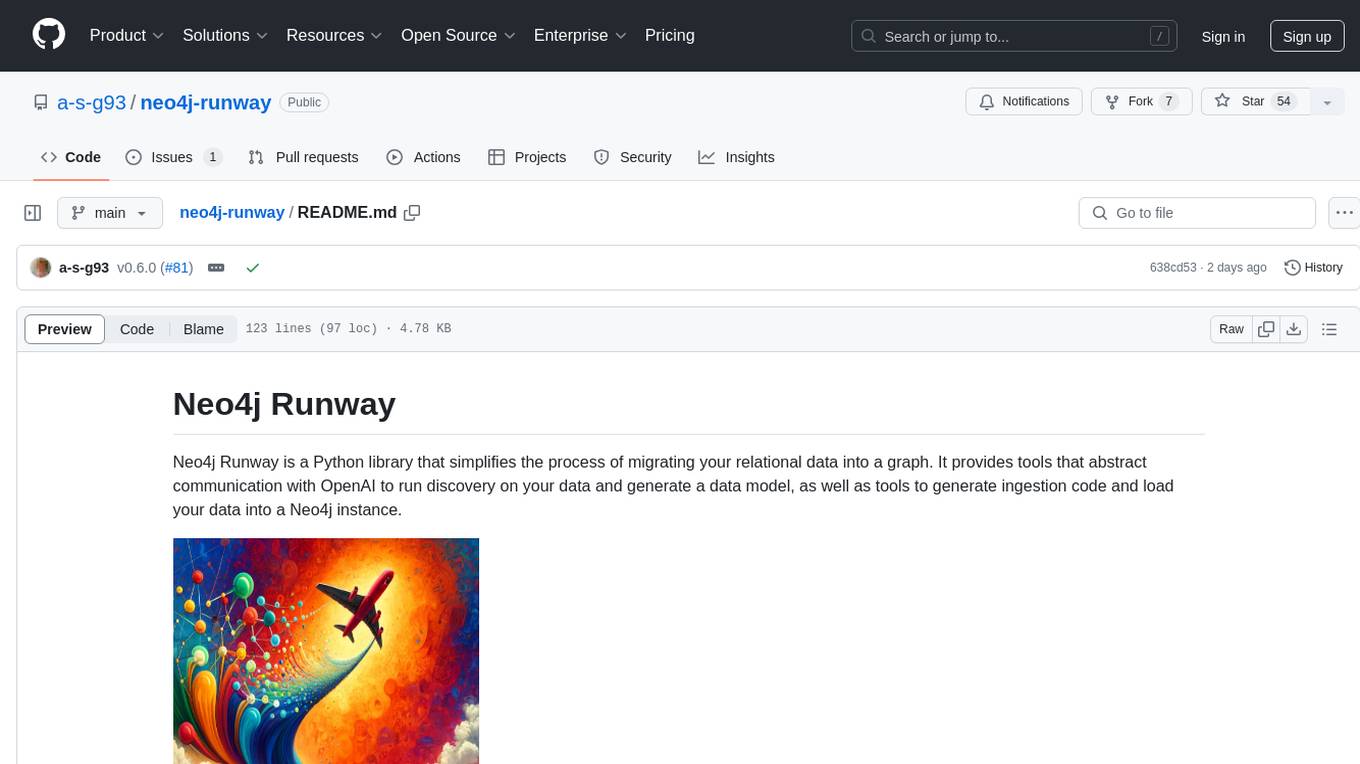
neo4j-runway
Neo4j Runway is a Python library that simplifies the process of migrating relational data into a graph. It provides tools to abstract communication with OpenAI for data discovery, generate data models, ingestion code, and load data into a Neo4j instance. The library leverages OpenAI LLMs for insights, Instructor Python library for modeling, and PyIngest for data loading. Users can visualize data models using graphviz and benefit from a seamless integration with Neo4j for efficient data migration.
20 - OpenAI Gpts
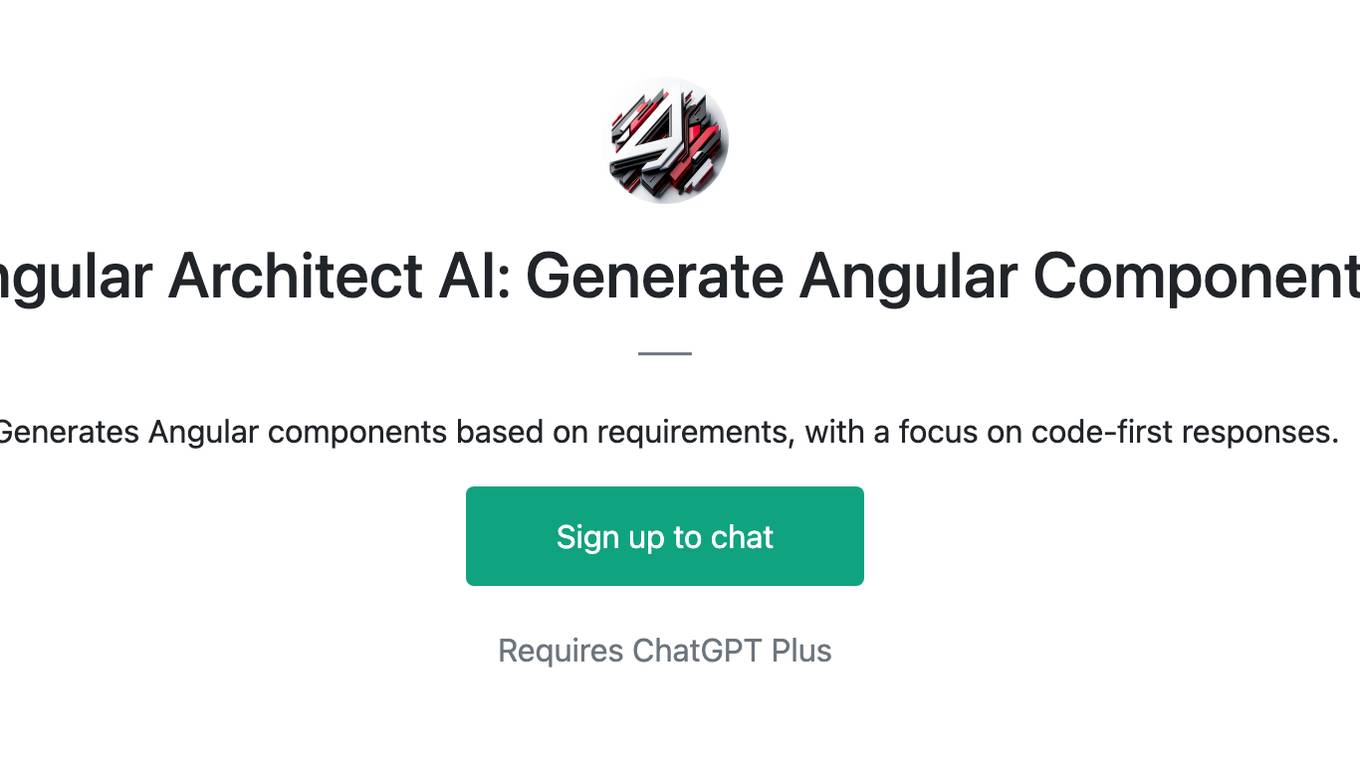
Angular Architect AI: Generate Angular Components
Generates Angular components based on requirements, with a focus on code-first responses.
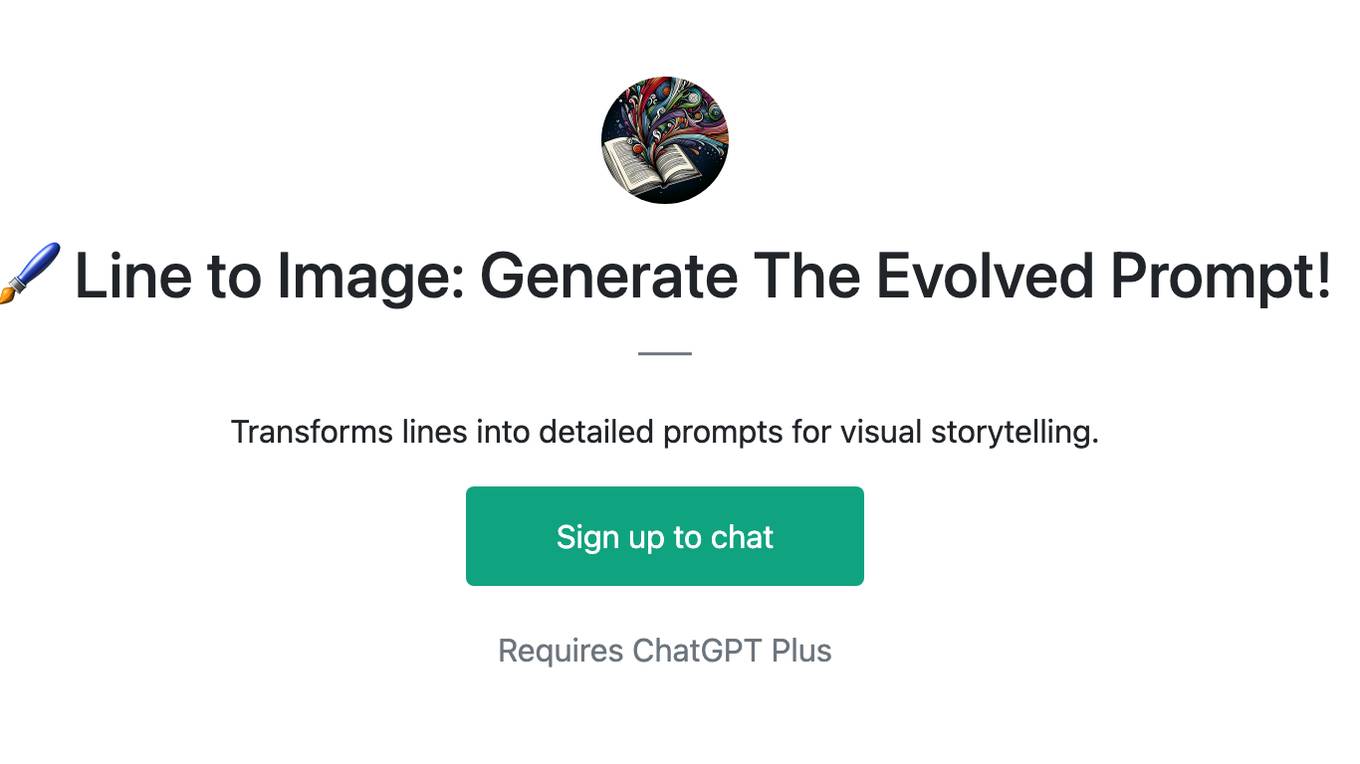
🖌️ Line to Image: Generate The Evolved Prompt!
Transforms lines into detailed prompts for visual storytelling.
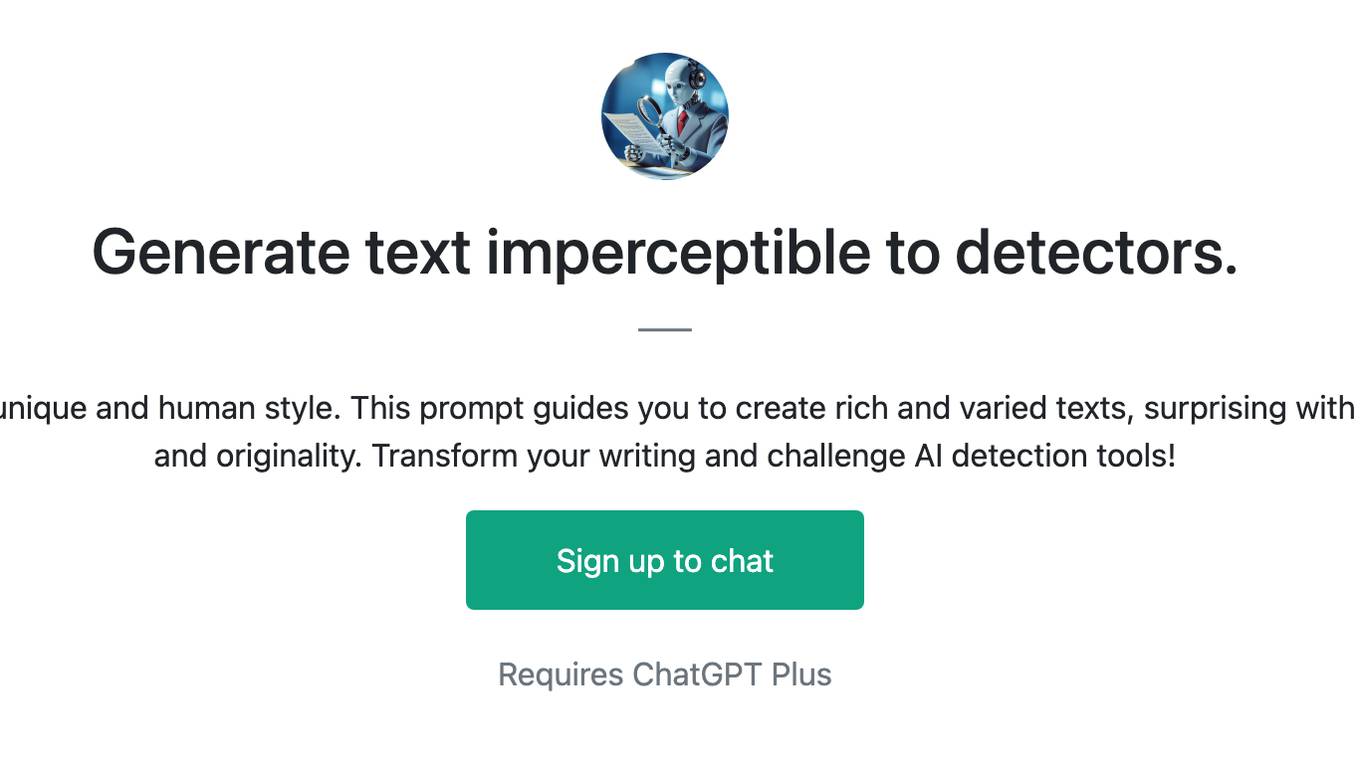
Generate text imperceptible to detectors.
Discover how your writing can shine with a unique and human style. This prompt guides you to create rich and varied texts, surprising with original twists and maintaining coherence and originality. Transform your writing and challenge AI detection tools!
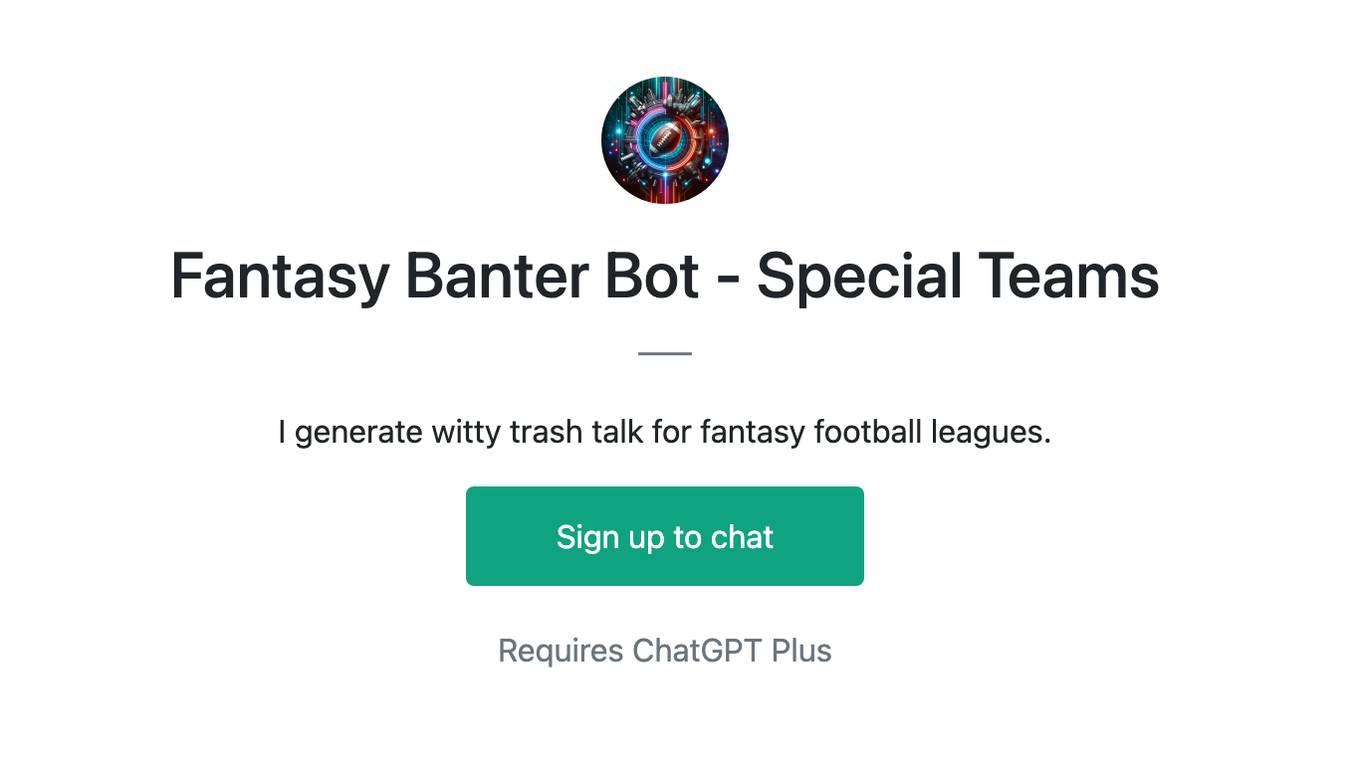
Fantasy Banter Bot - Special Teams
I generate witty trash talk for fantasy football leagues.
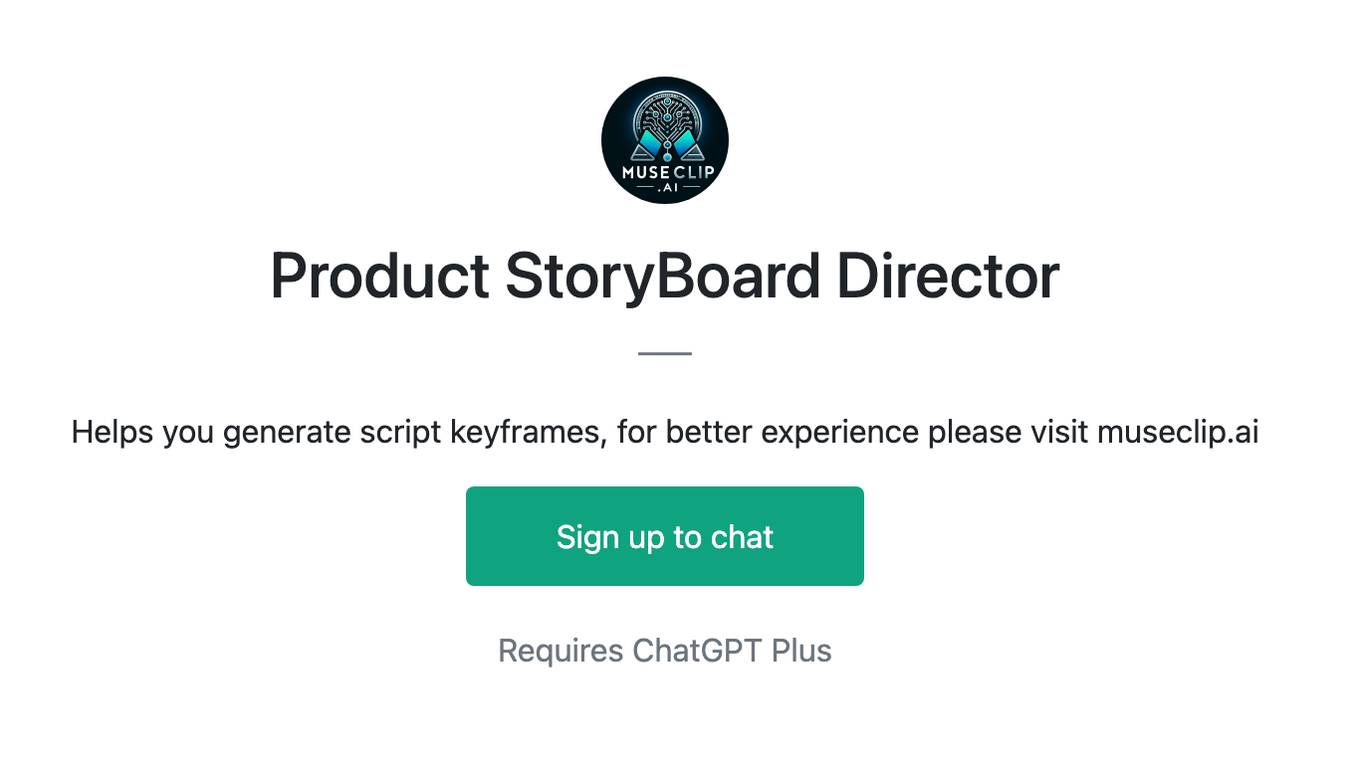
Product StoryBoard Director
Helps you generate script keyframes, for better experience please visit museclip.ai
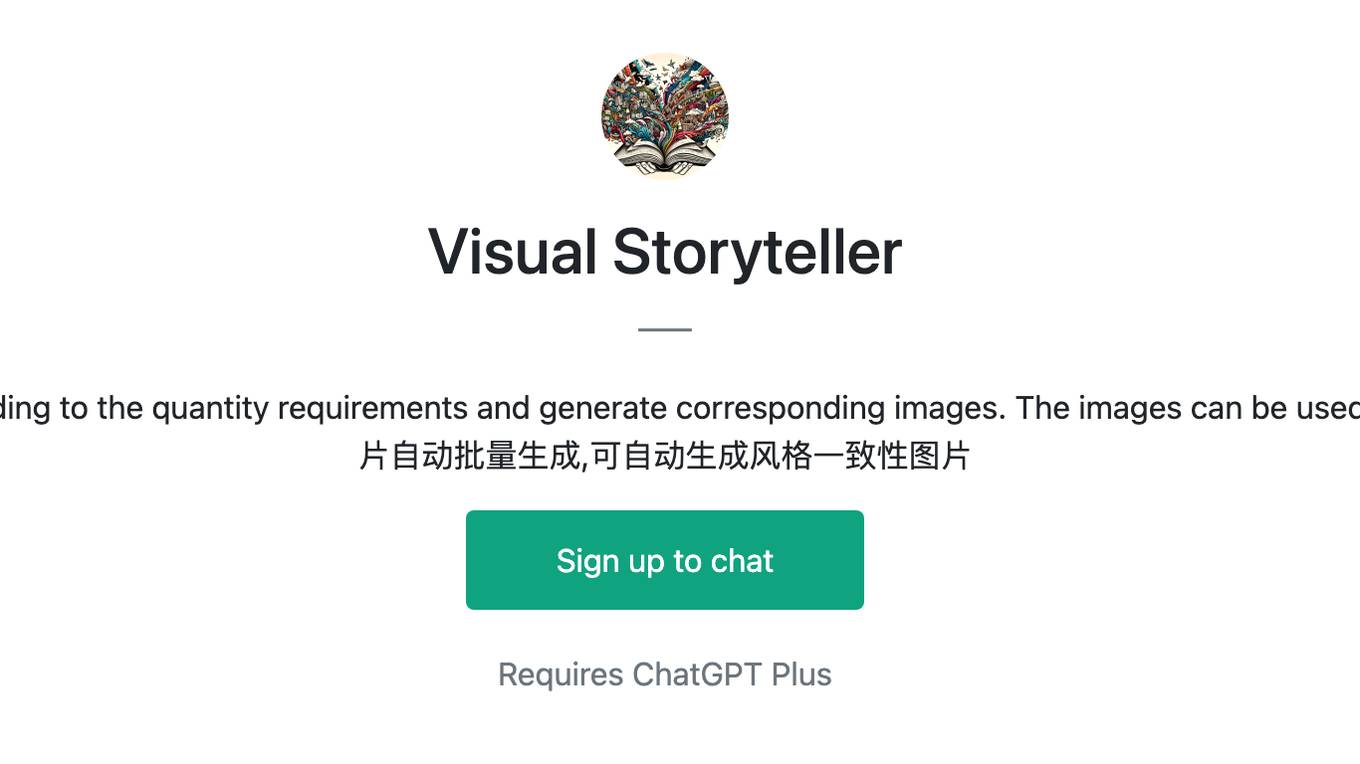
Visual Storyteller
Extract the essence of the novel story according to the quantity requirements and generate corresponding images. The images can be used directly to create novel videos.小说推文图片自动批量生成,可自动生成风格一致性图片
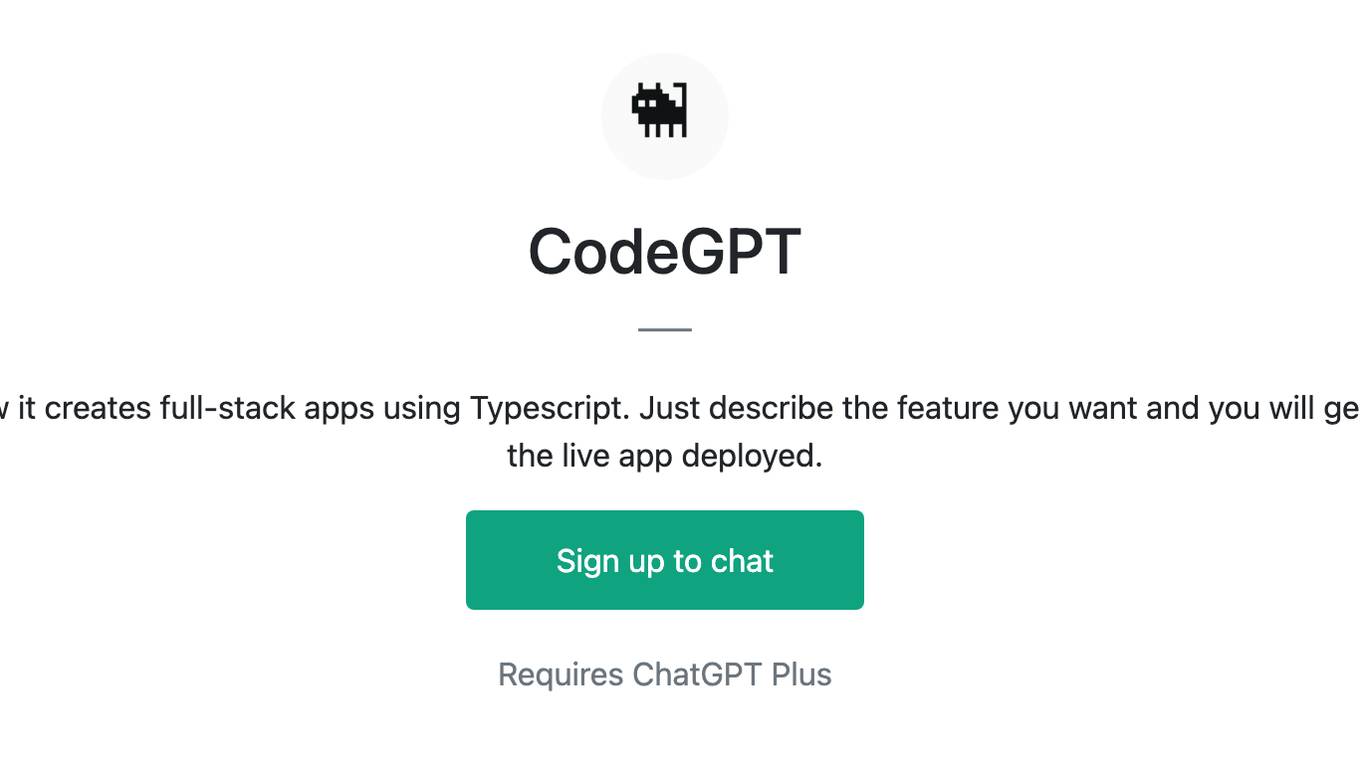
CodeGPT
This GPT can generate code for you. For now it creates full-stack apps using Typescript. Just describe the feature you want and you will get a link to the Github code pull request and the live app deployed.
